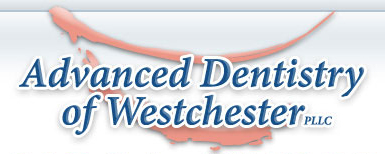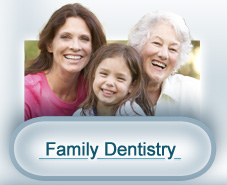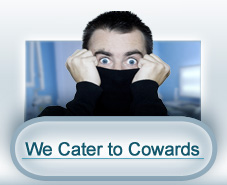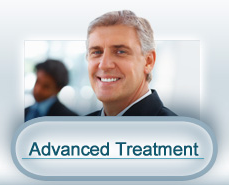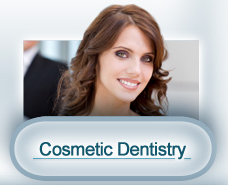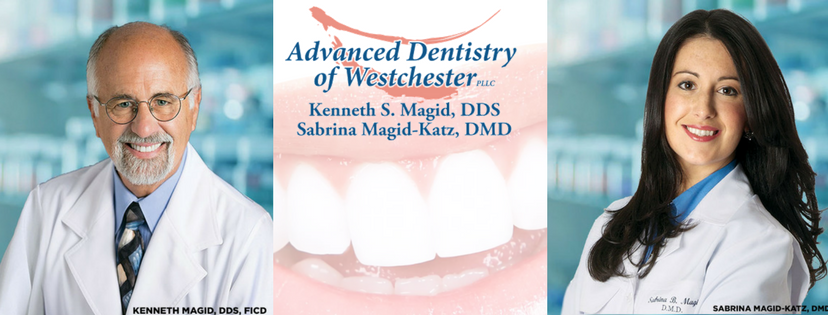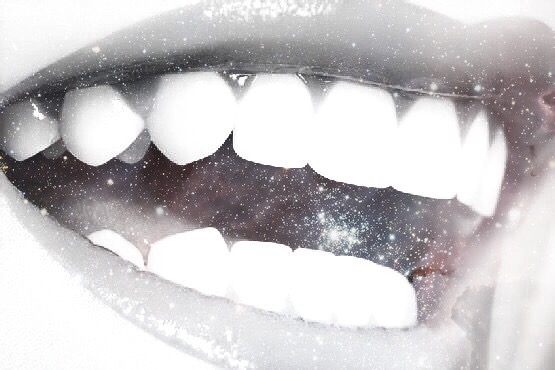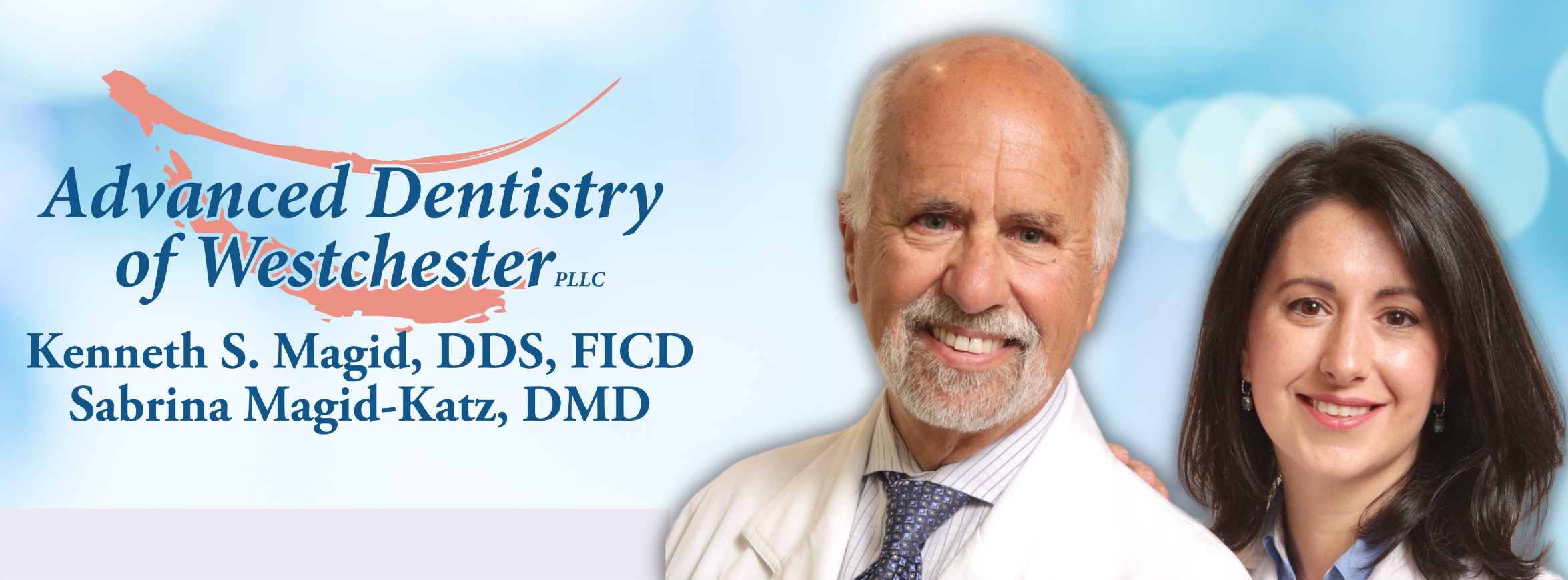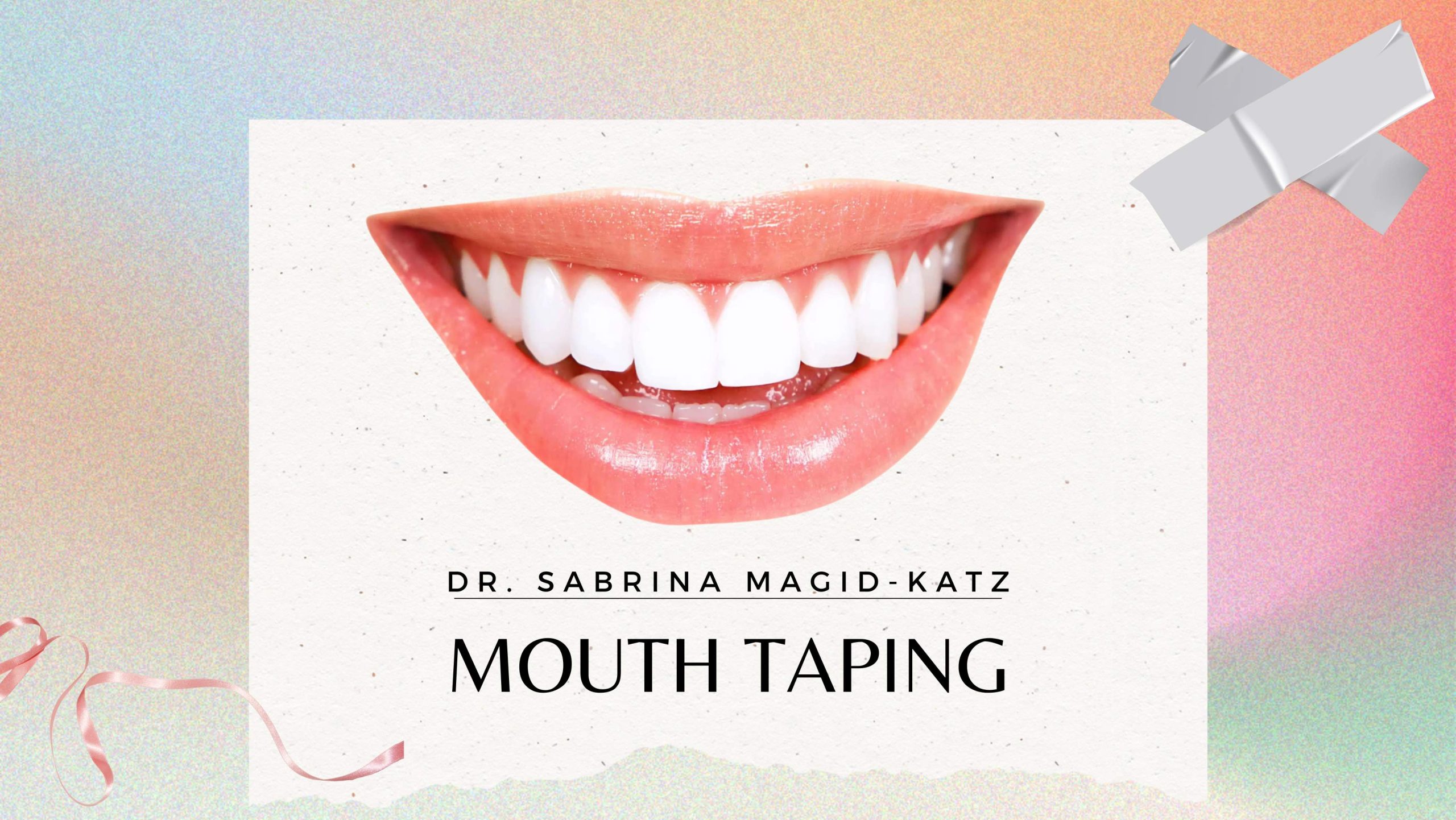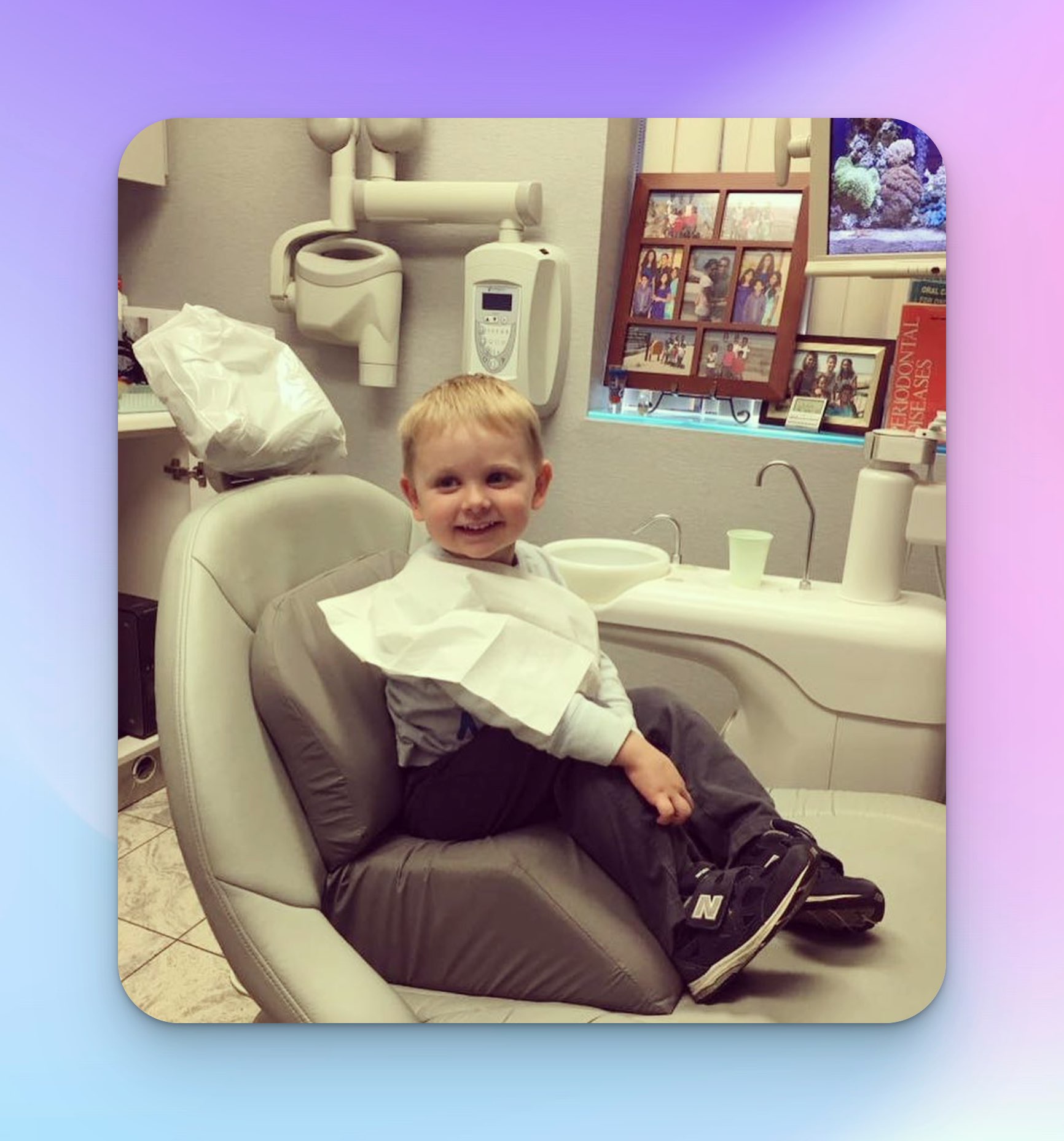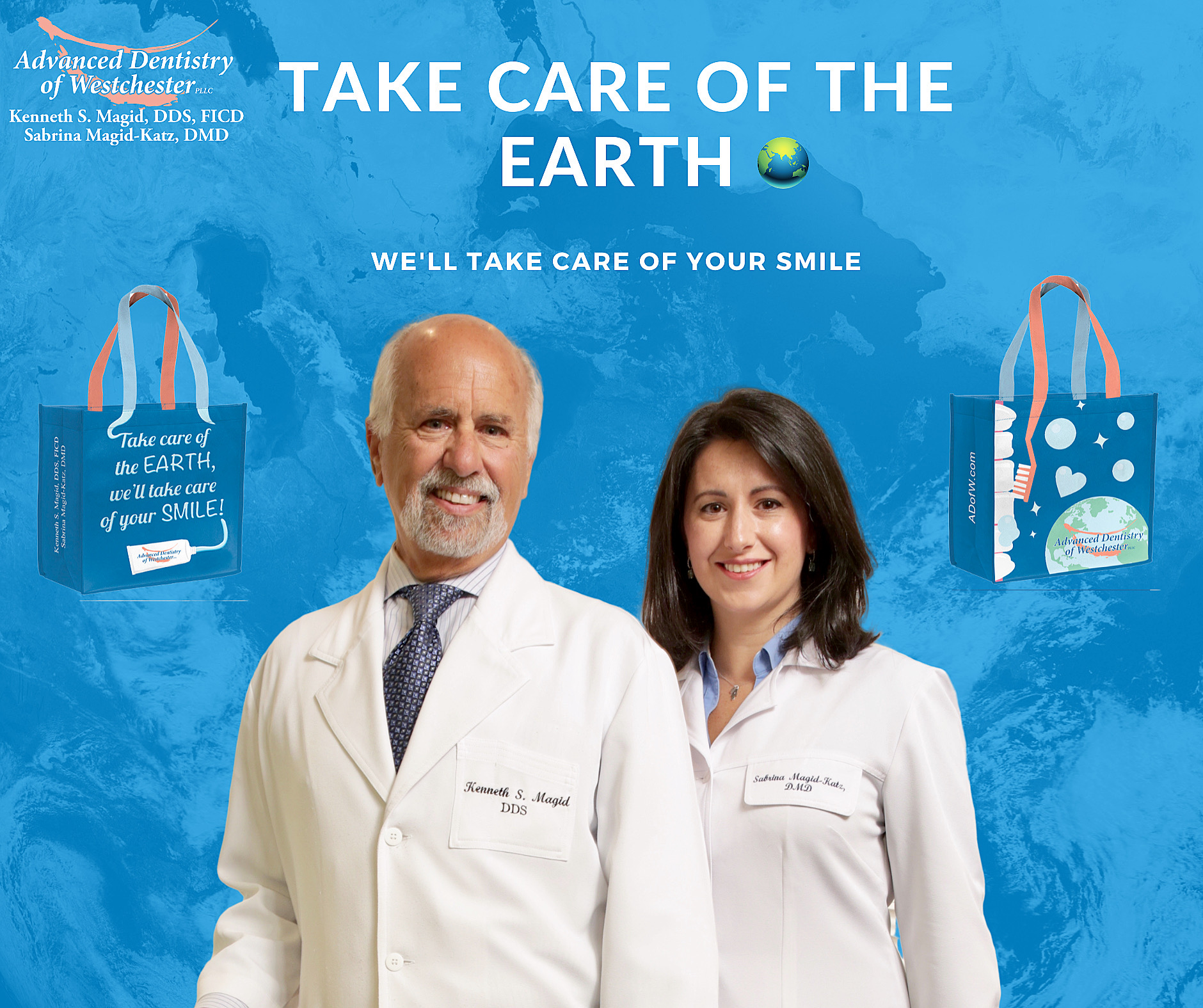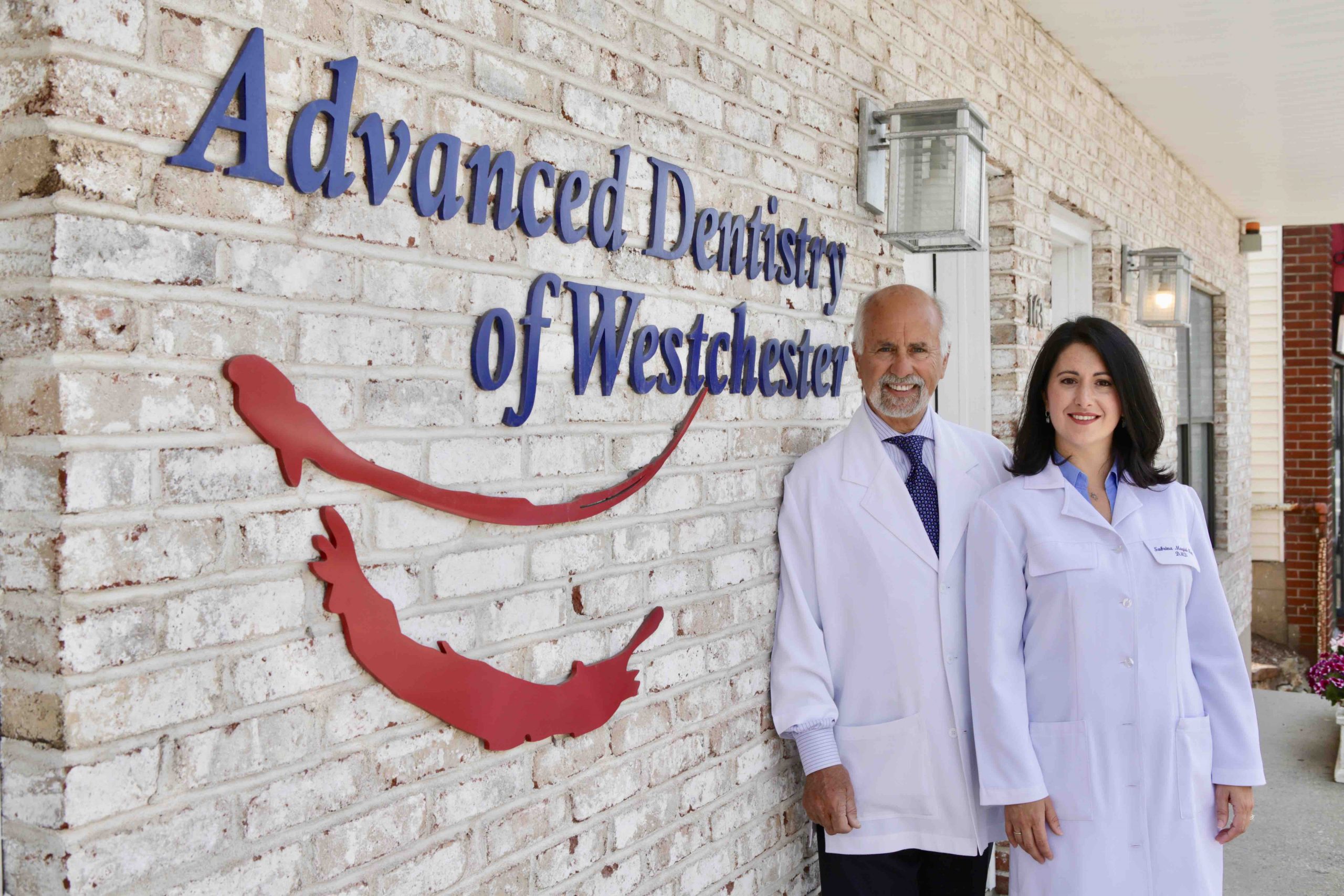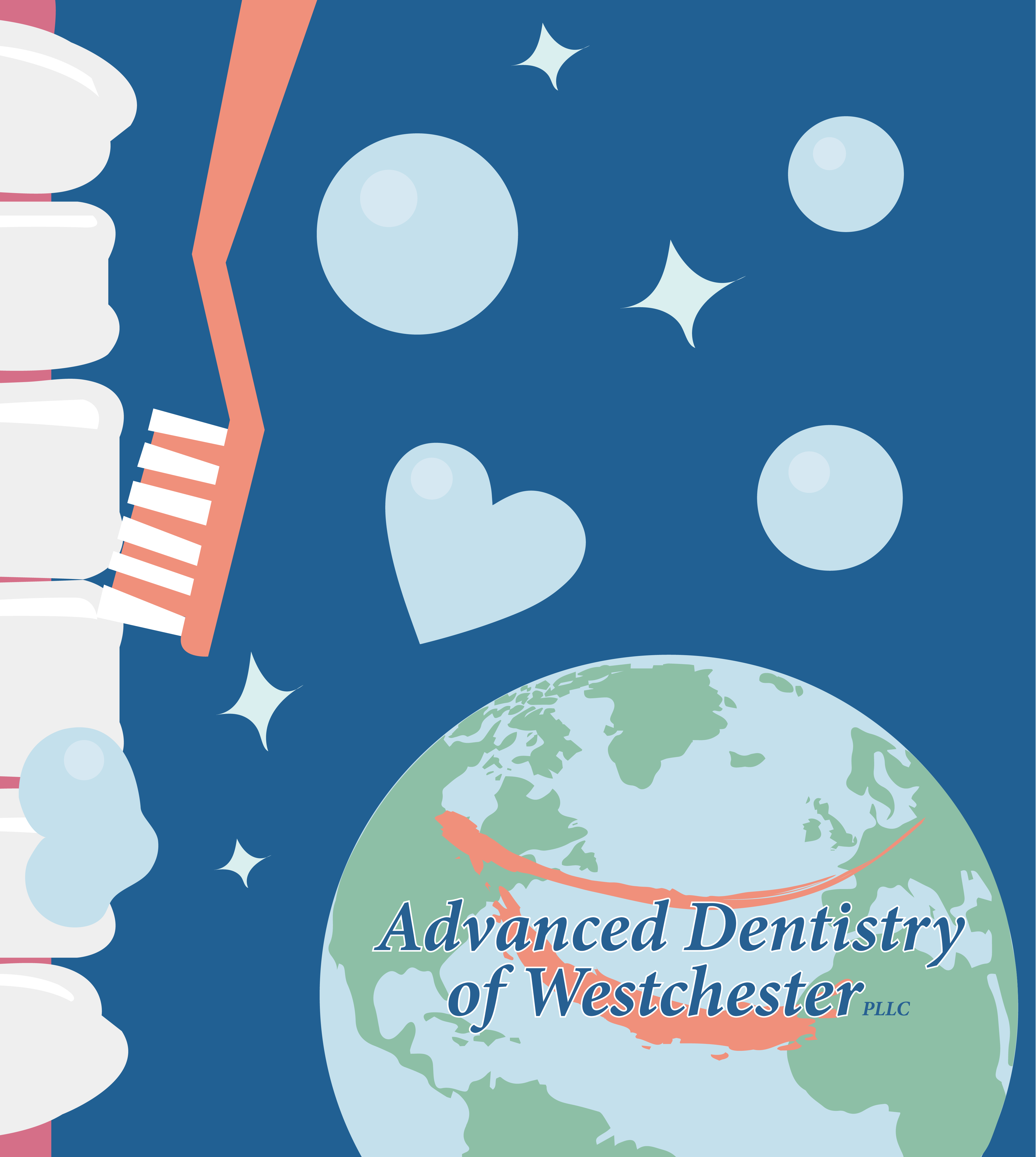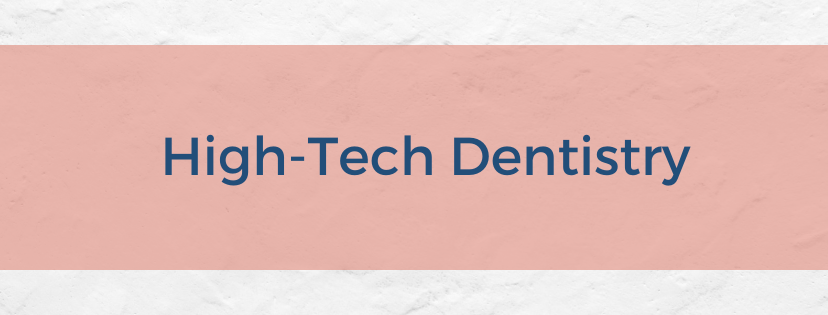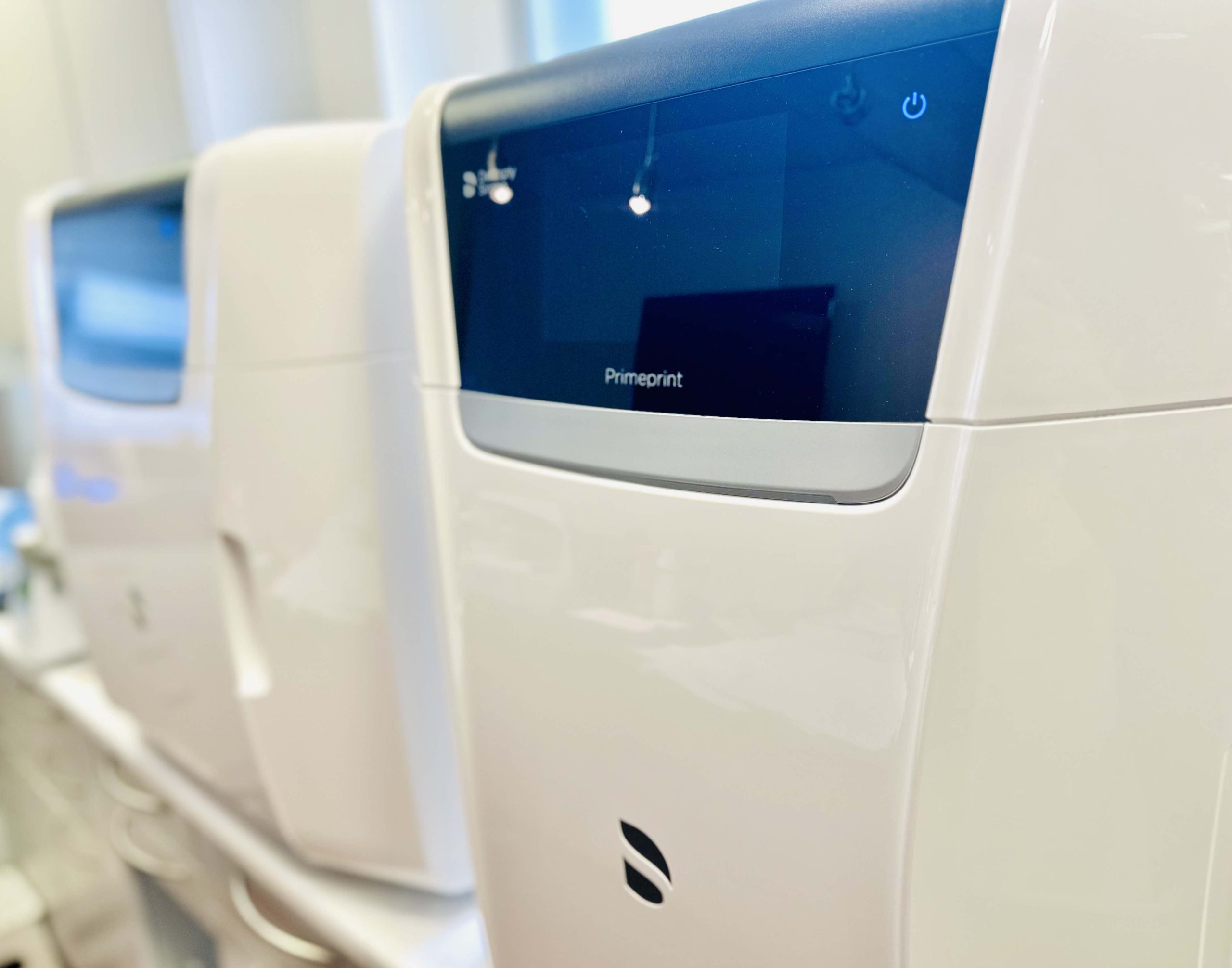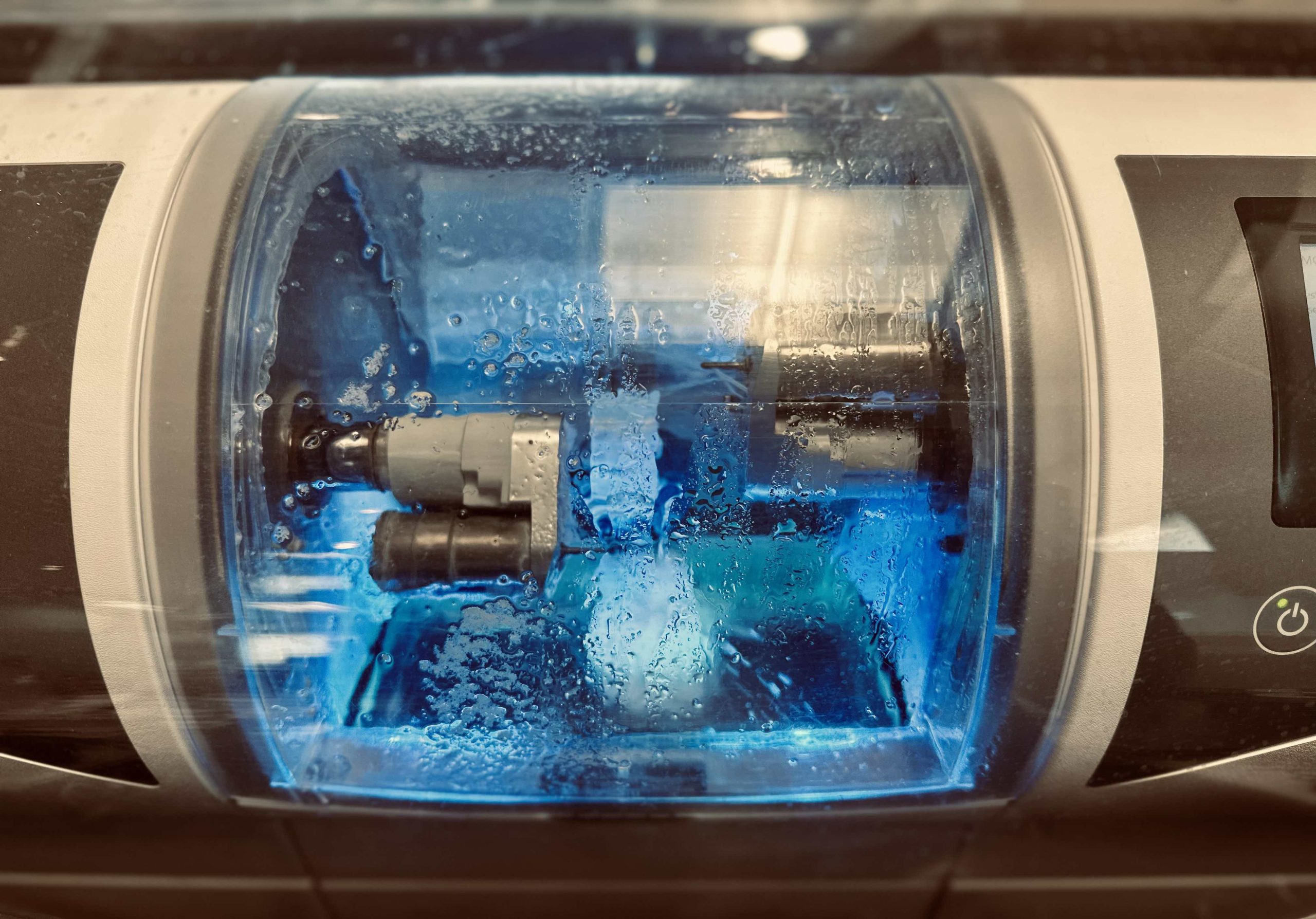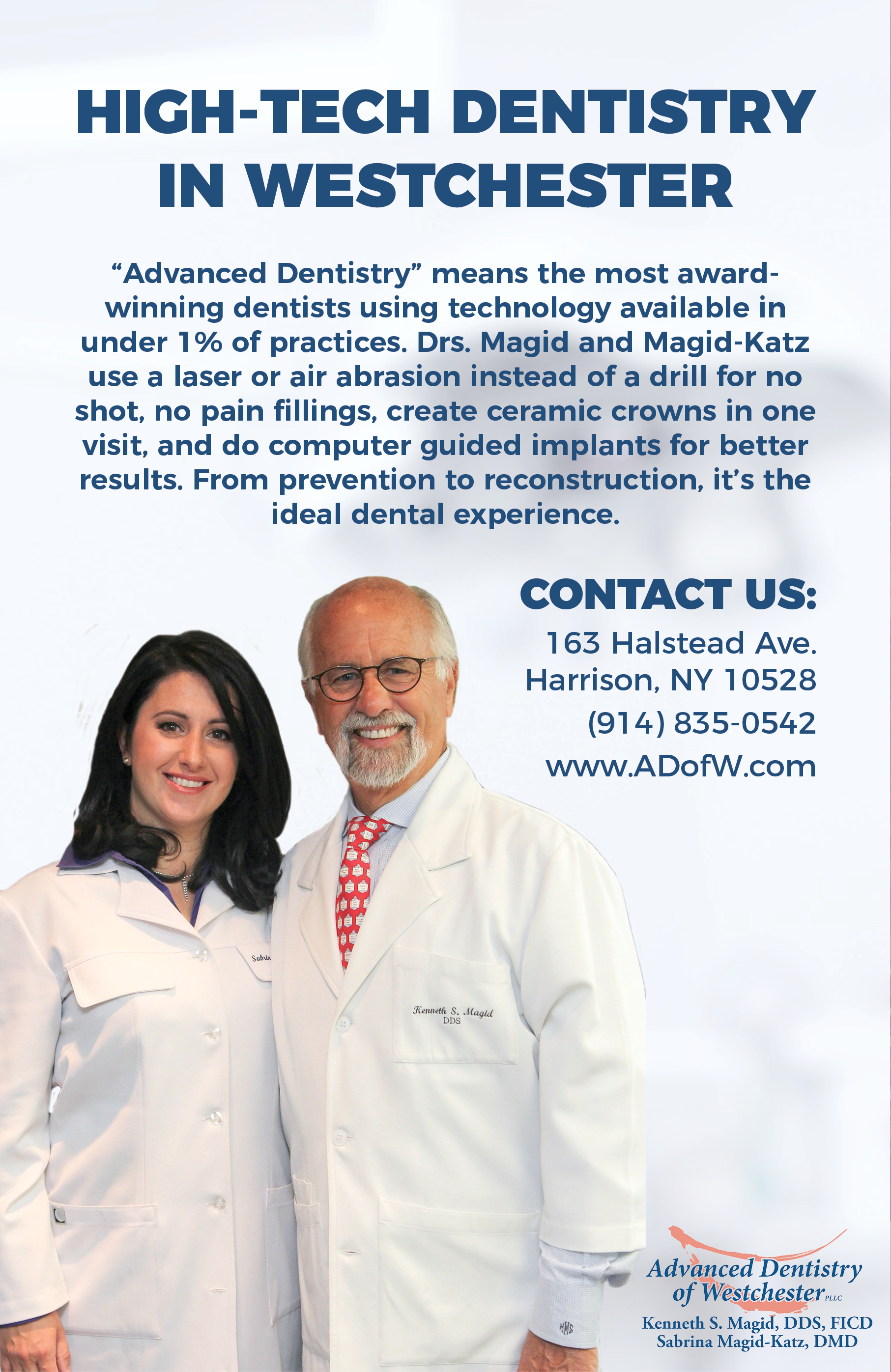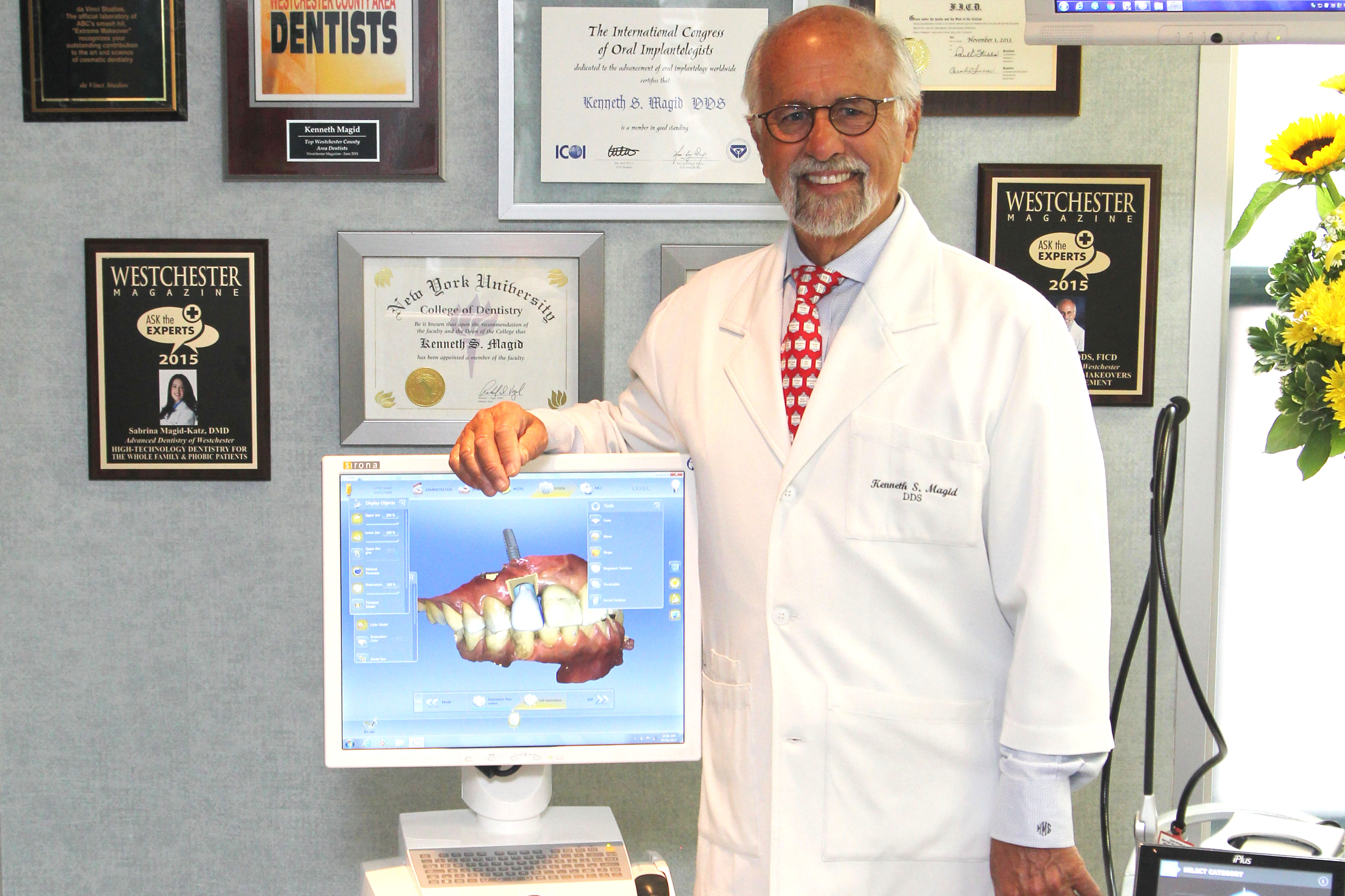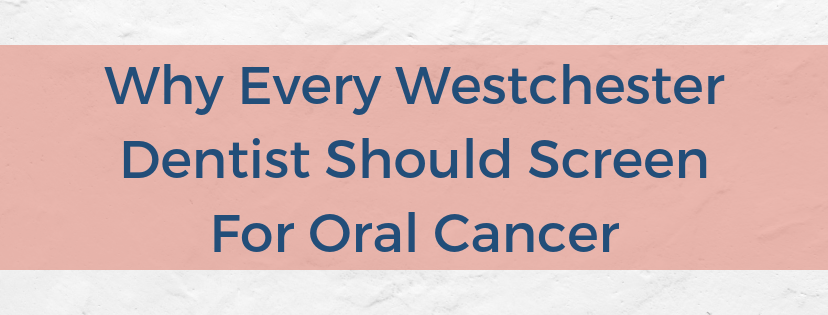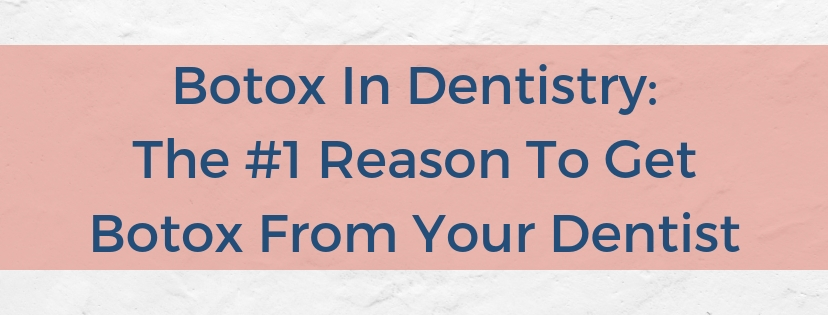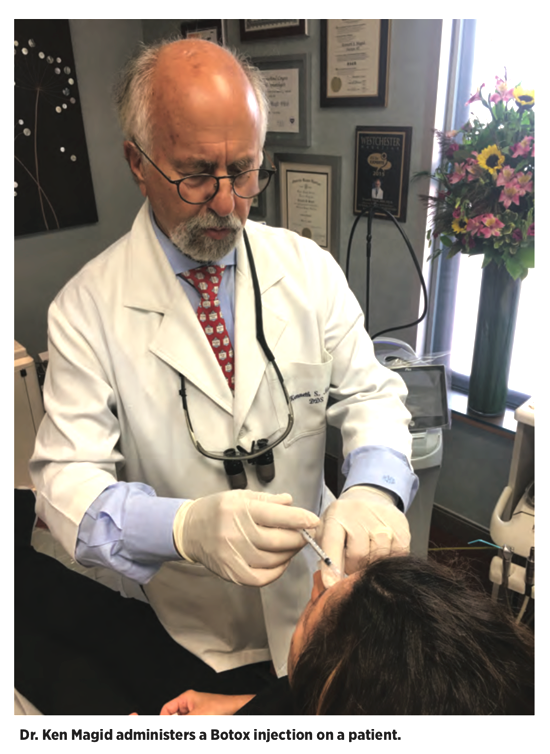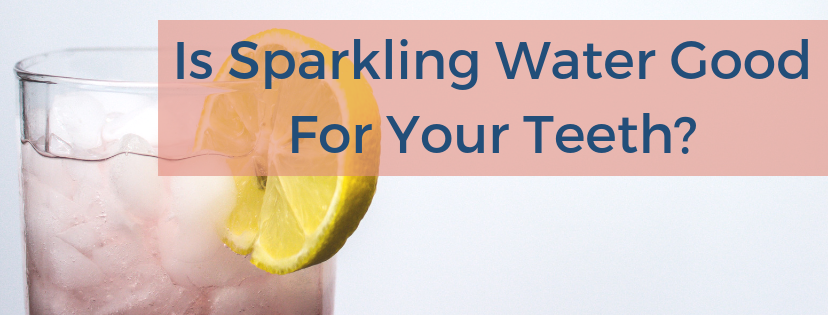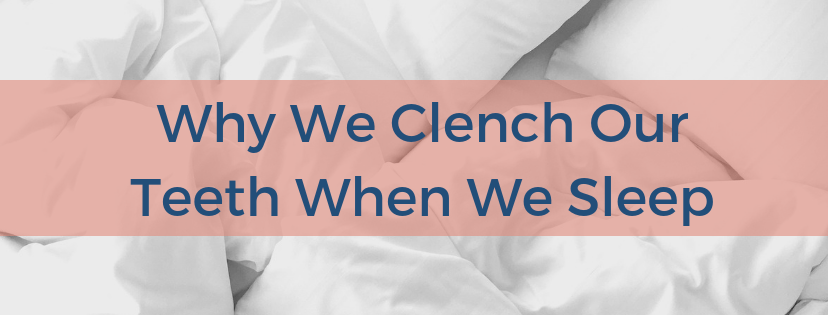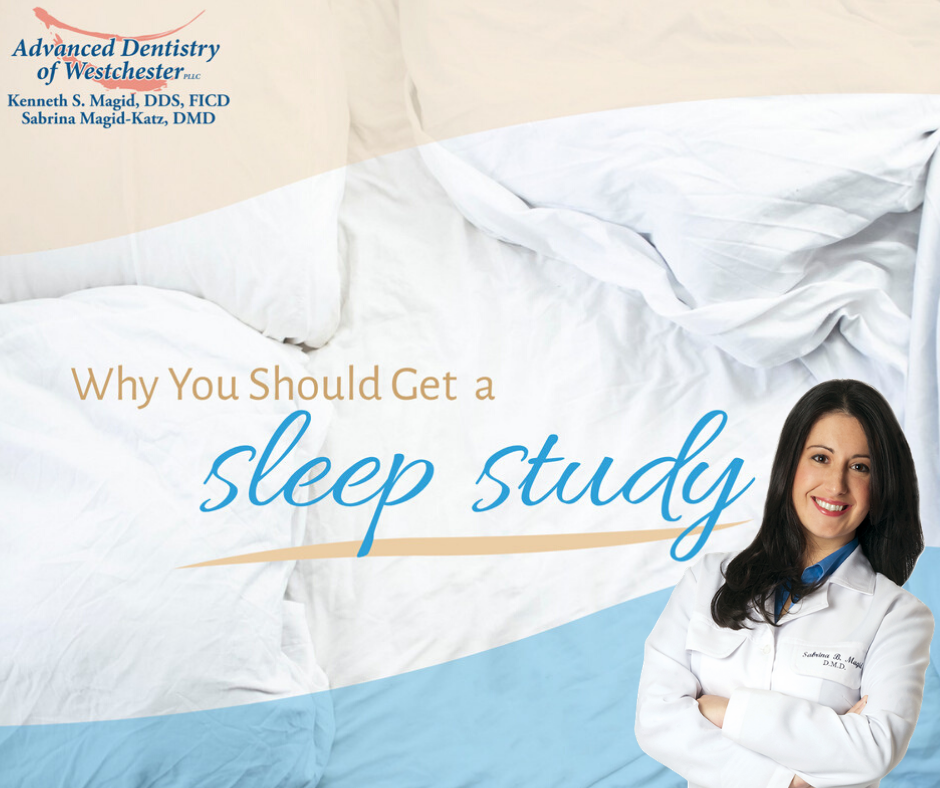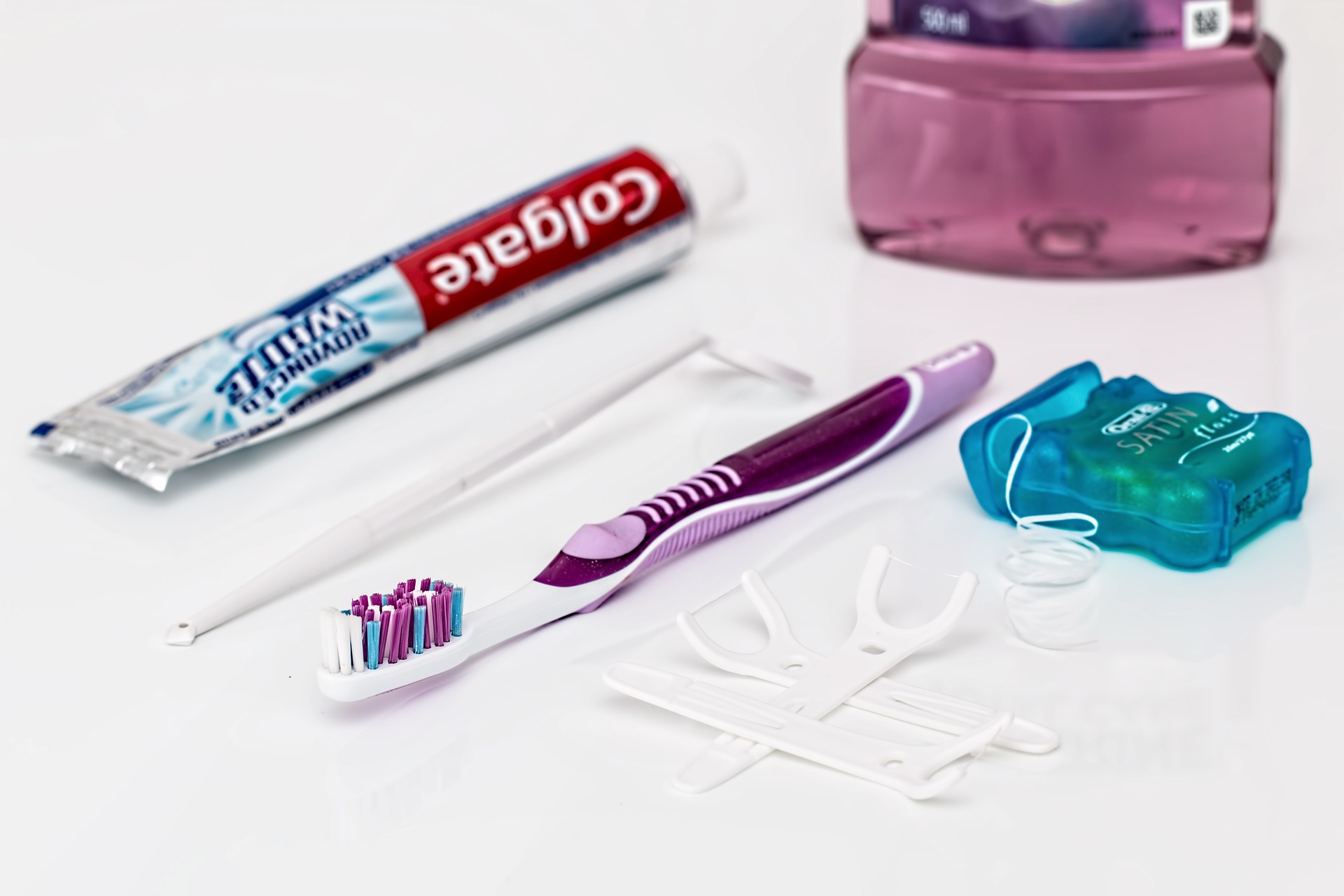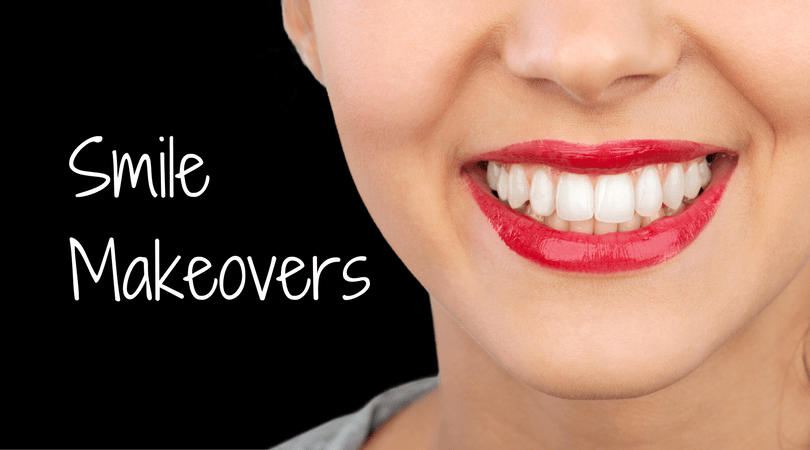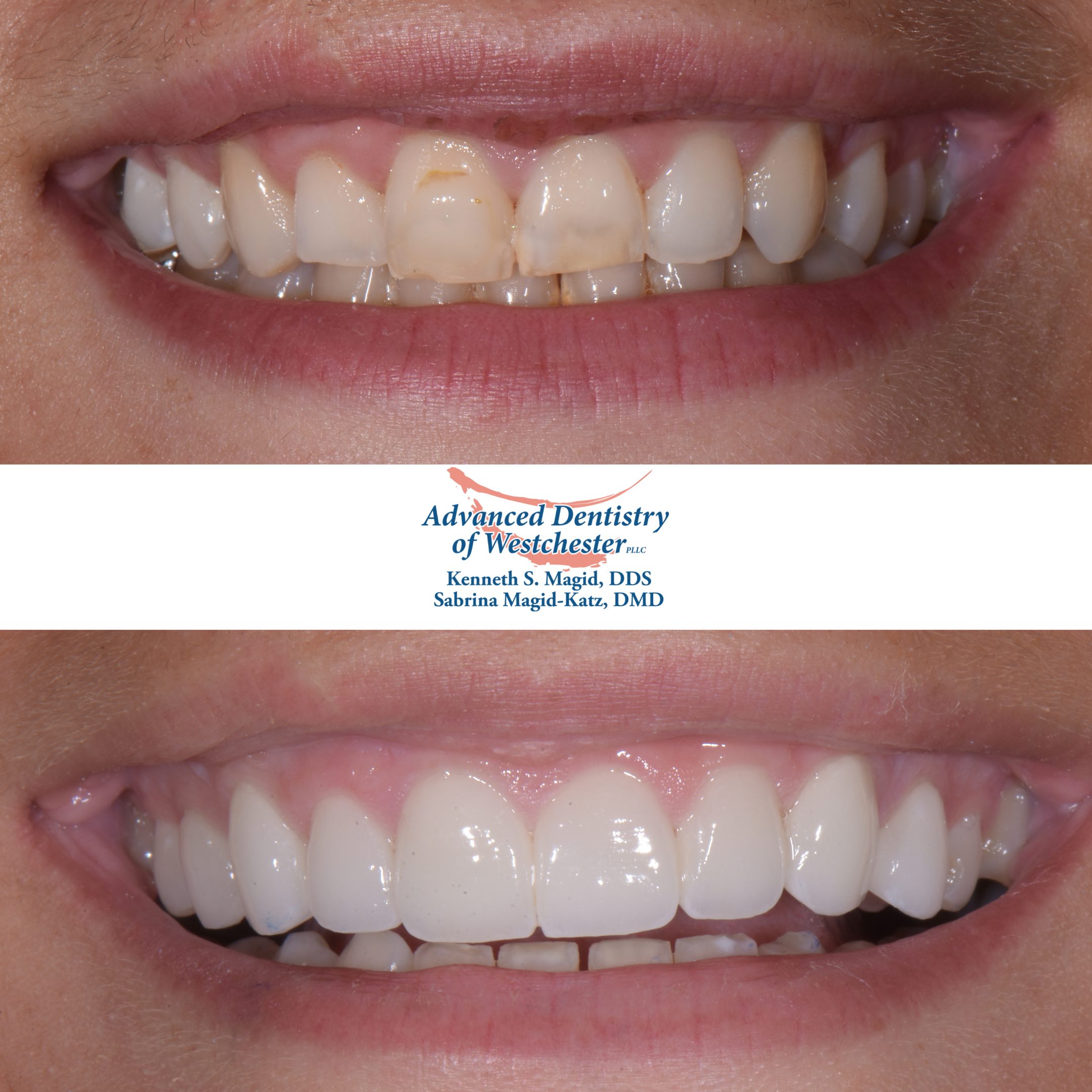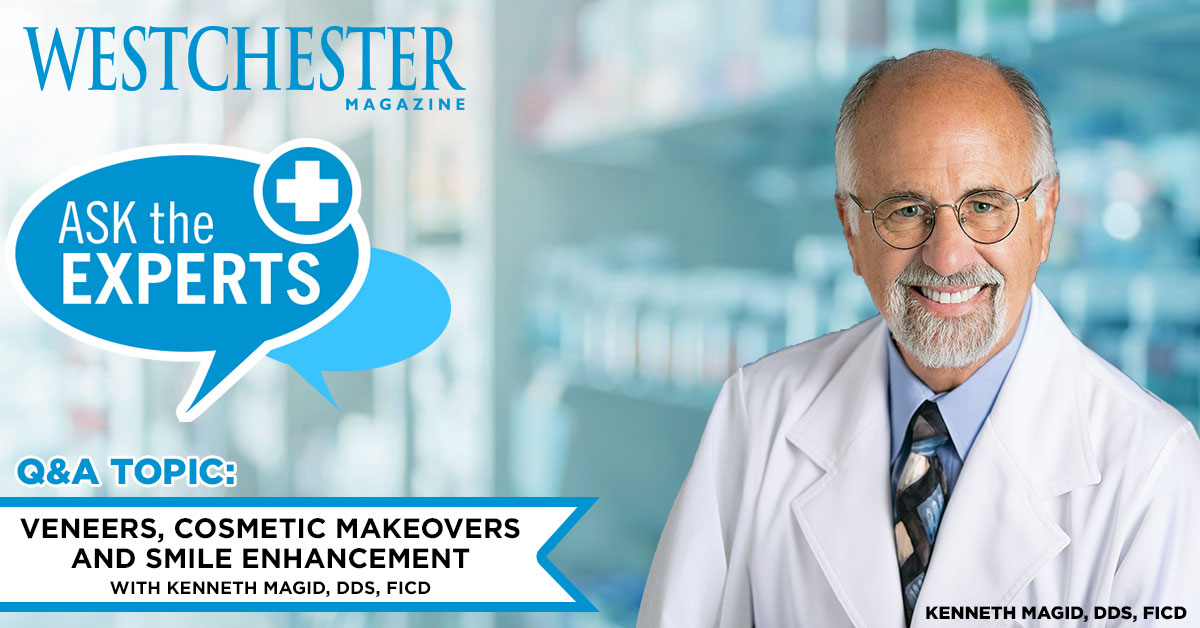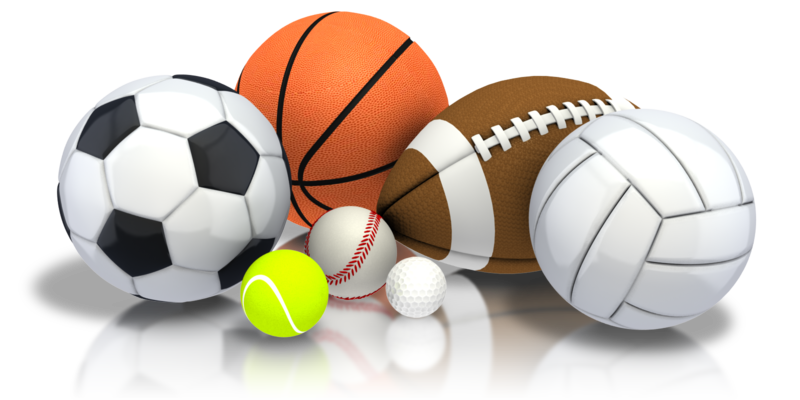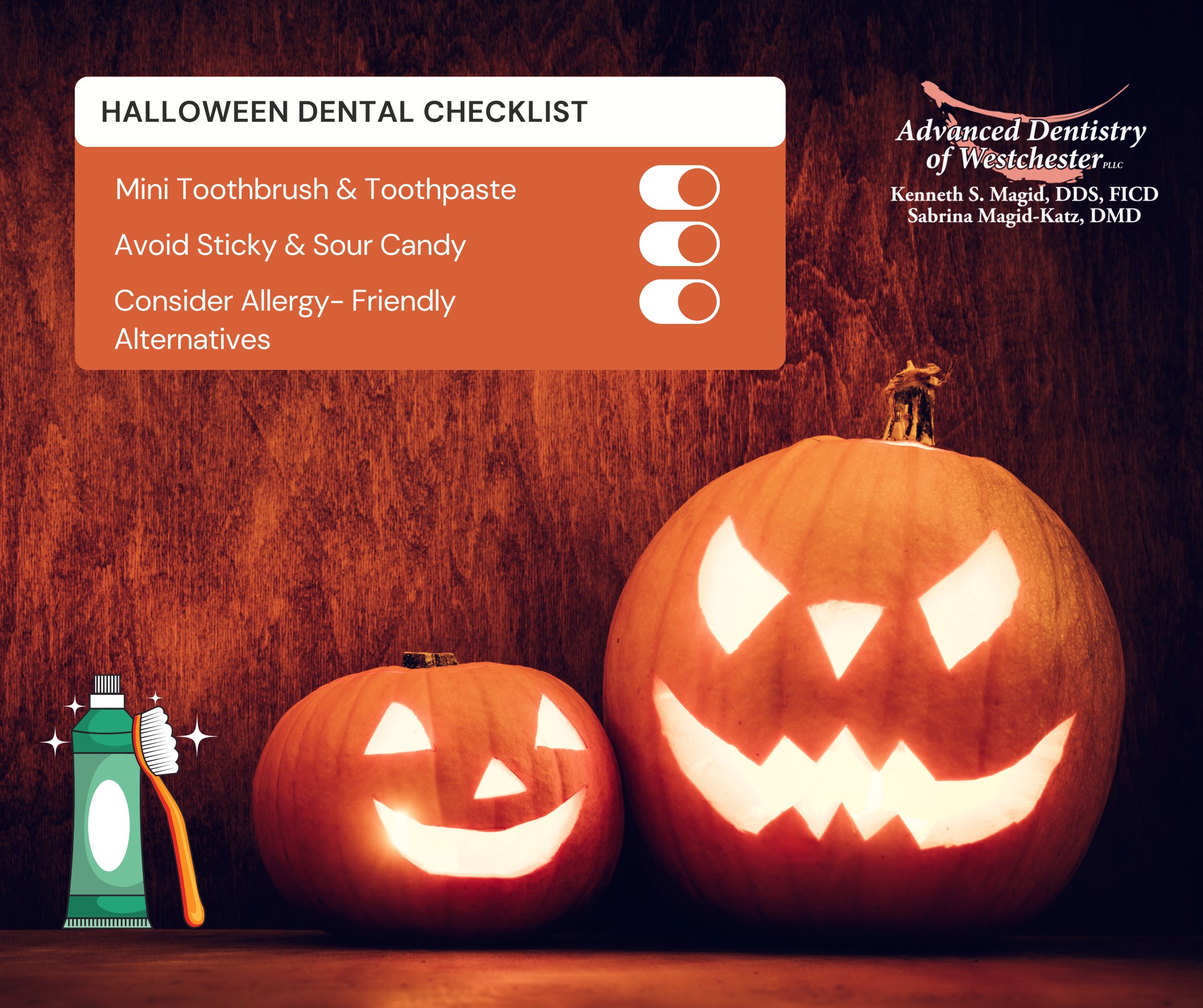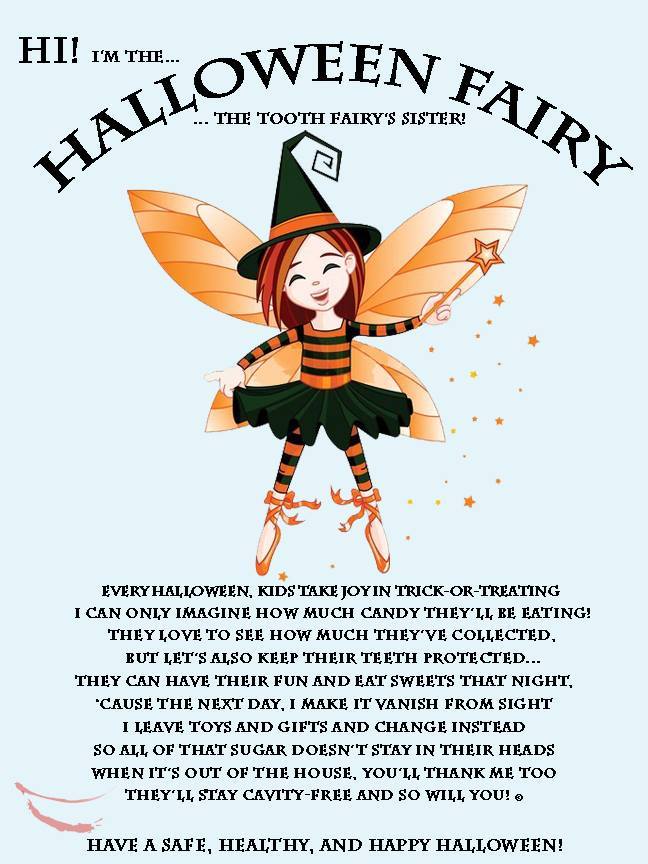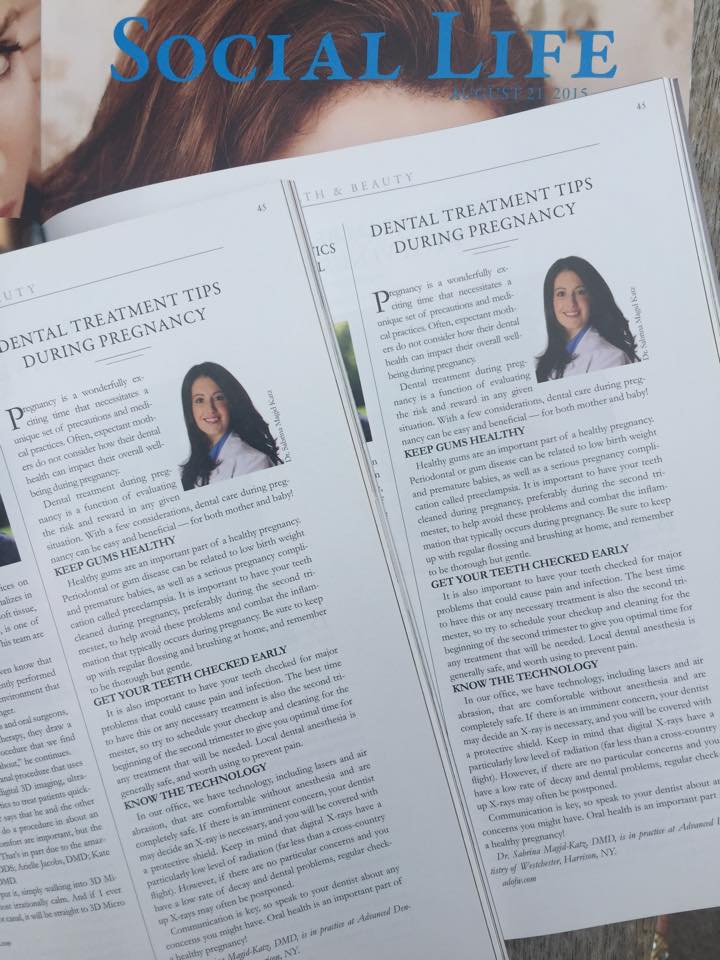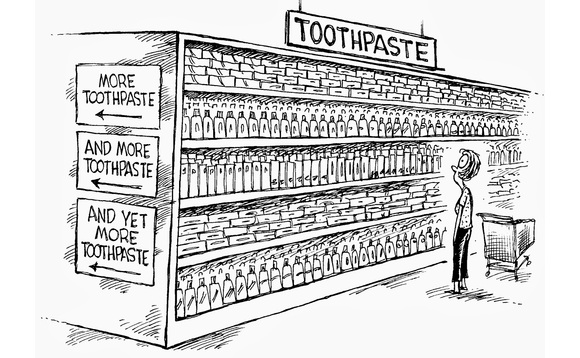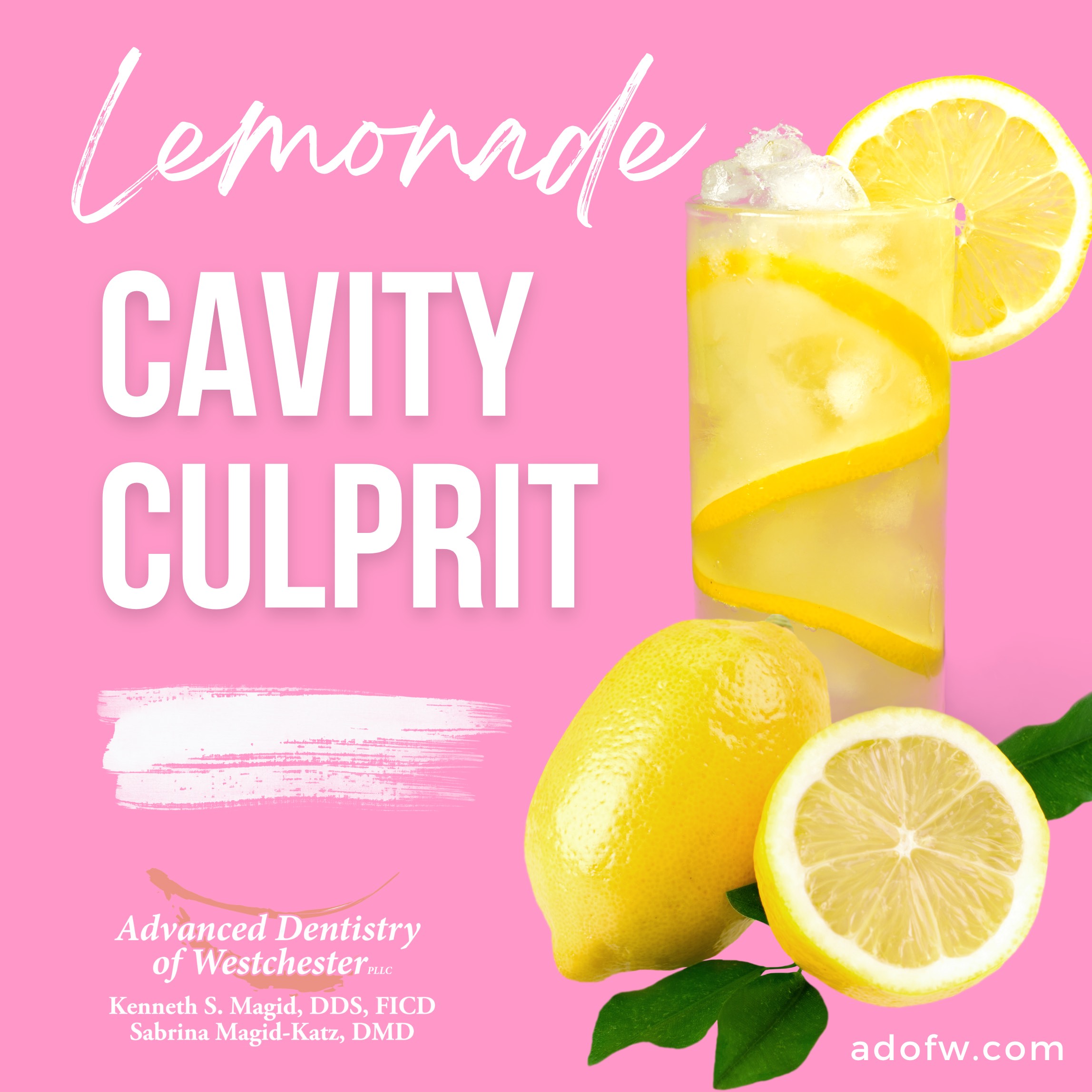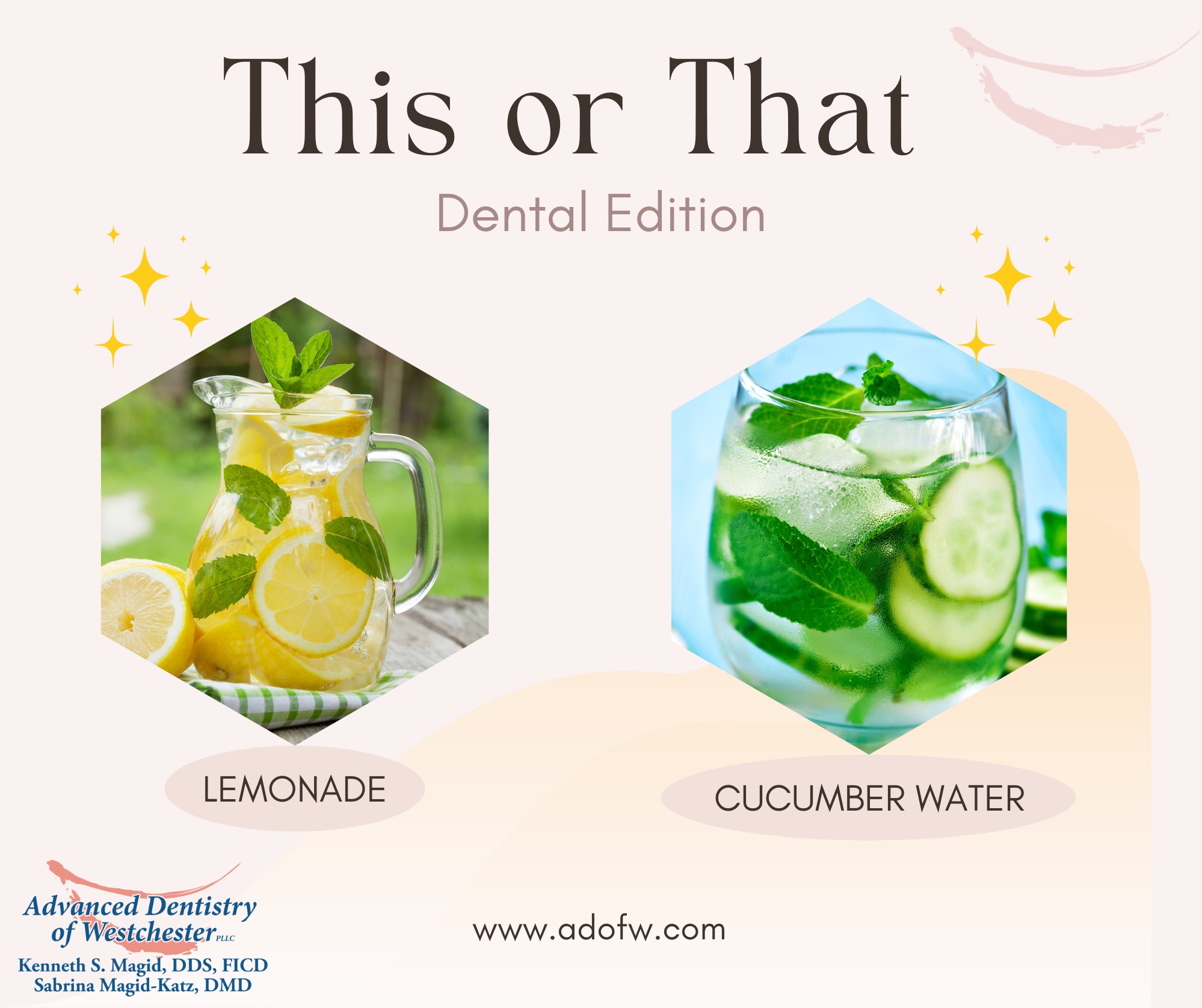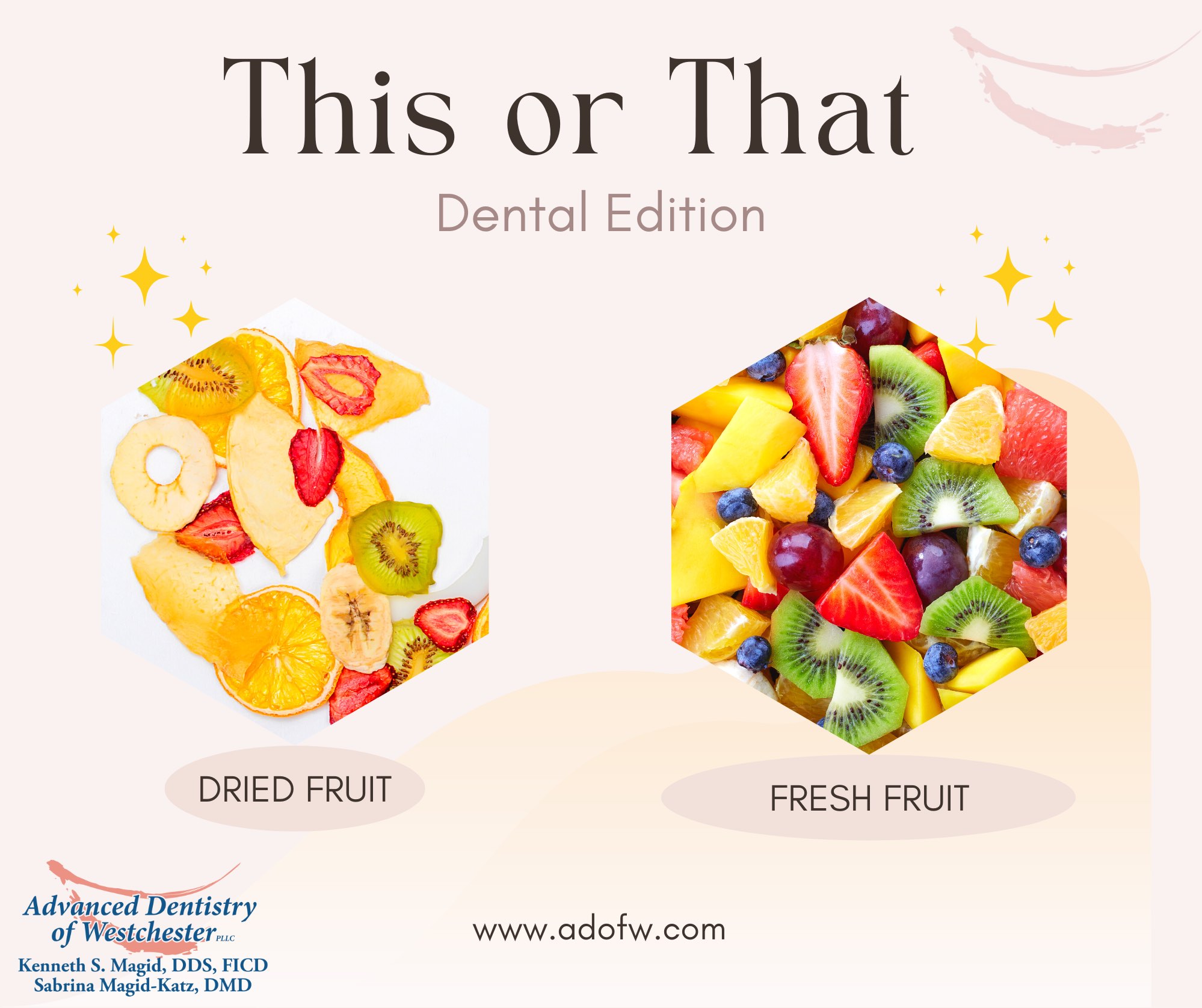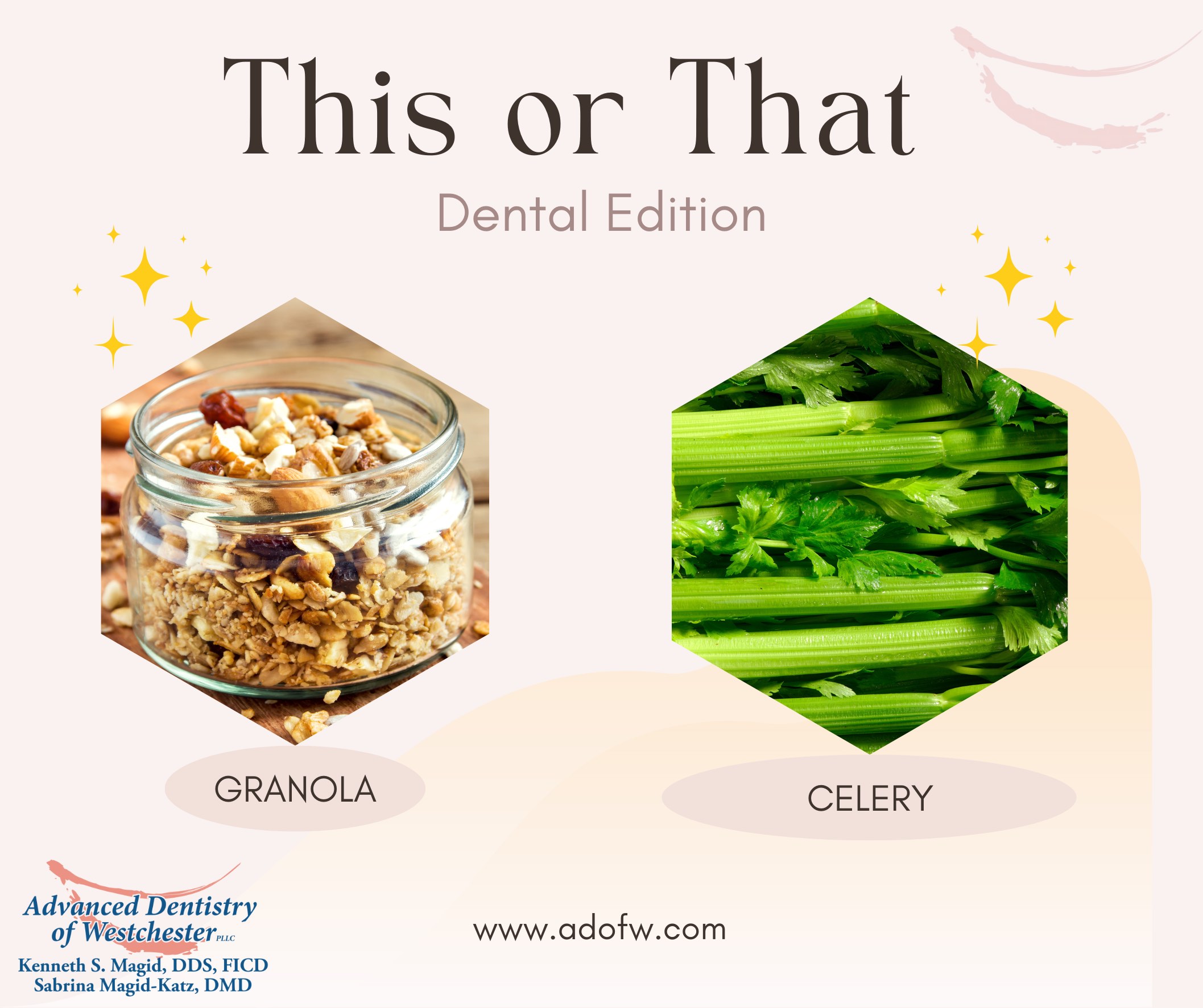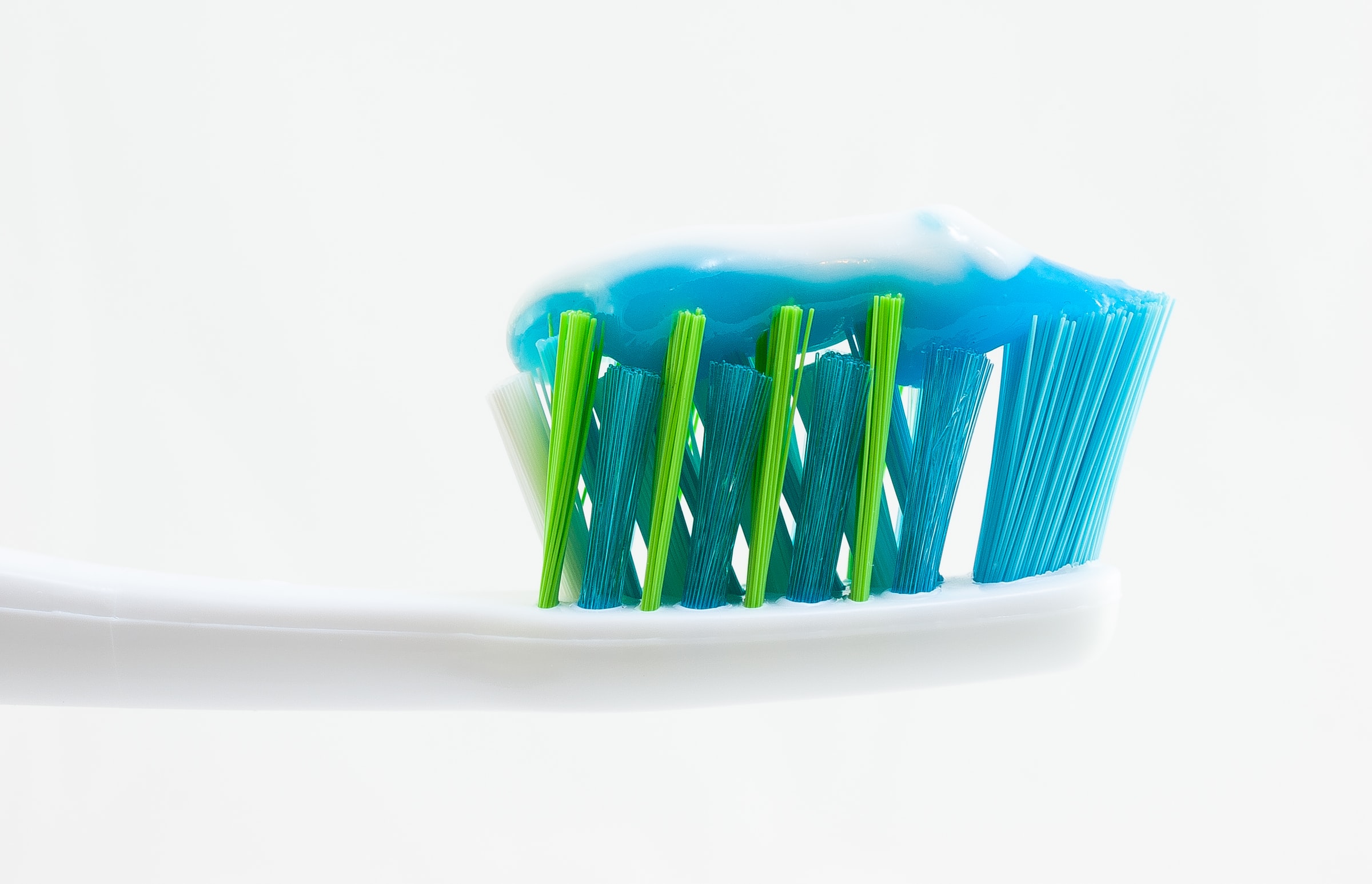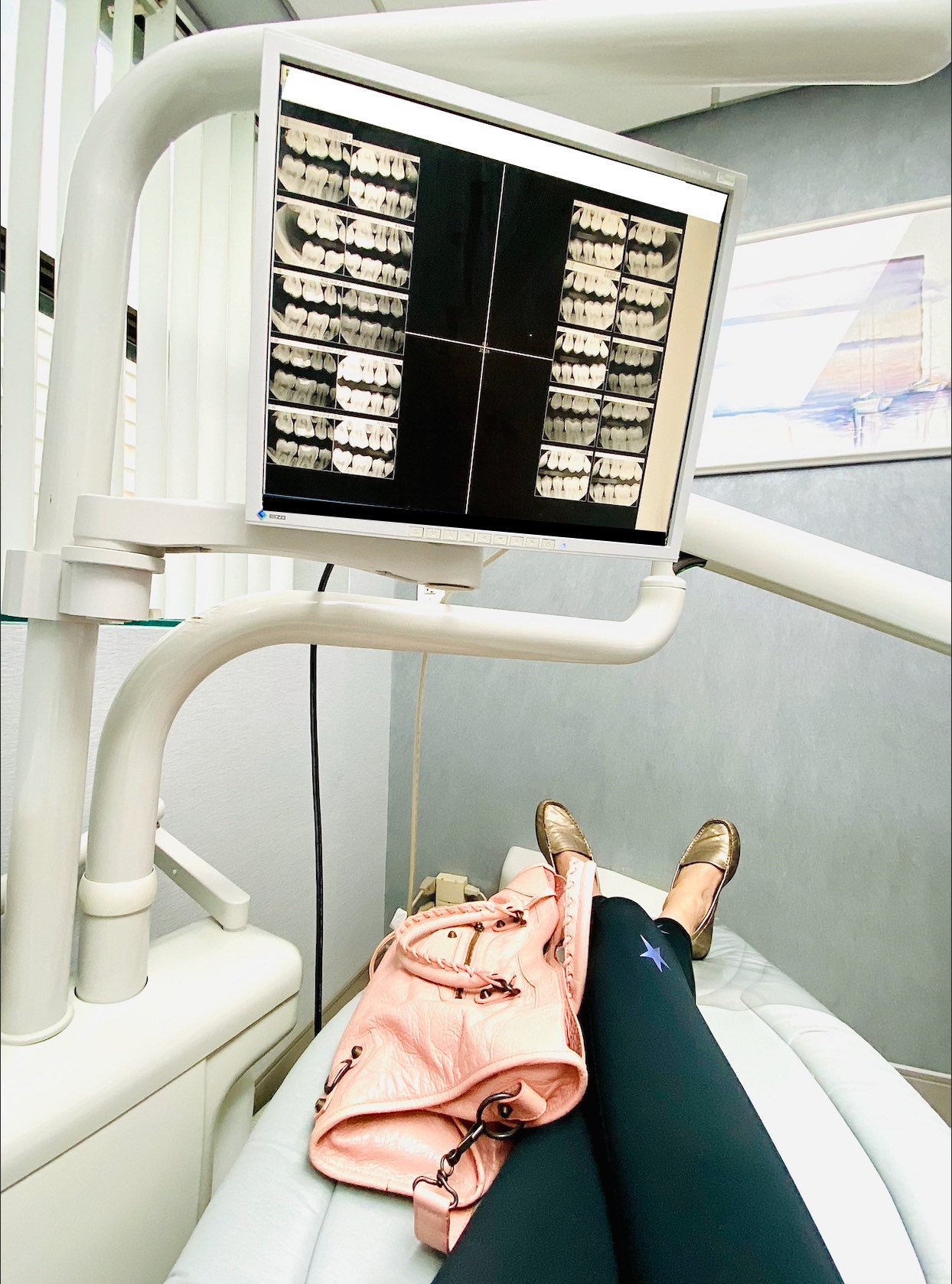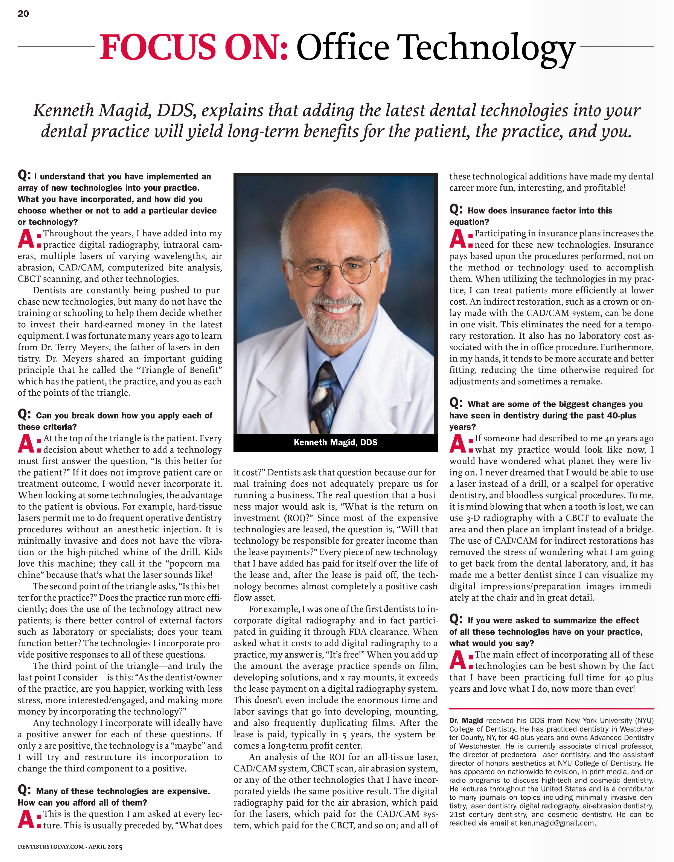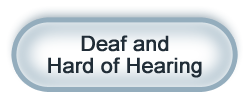Practice Blog
How much do veneers cost in Westchester County?
The Cost of Porcelain Veneers in Westchester County
How much do veneers cost?
The cost of veneers varies widely depending upon the dental practice providing them. This variation does not necessarily reflect the experience or training of the dentist but often the location of the practice. Veneers in Manhattan are significantly more expensive than veneers in the suburbs. Veneers range in price from $1,800 at the low end to $3,500 or more each at the high end. Additional costs may be needed for things like modification of the gums. For a beautiful final smile, not only do the teeth need to be attractive, but the surrounding soft tissue but also be harmonious and provide the correct proportions.
Does insurance cover veneers?
Veneers are generally not covered by insurance as they are cosmetic treatments. In some cases where the teeth have certain failing fillings or decay they may be covered but that is not common.
What are veneers?
Veneers are thin “laminates” placed on the facial (front) surfaces of the teeth. In general, they are 0.3-0.5mm thick…the same as a piece of paper. Depending upon the position of the teeth, they may require the underlying teeth to be prepared so as not to become bulky. There are “no prep” veneers advertised and in very specific cases they may be appropriate but for most esthetic treatments some preparation of the teeth is necessary.
Are veneers painful?
Veneers are, or should be, minimally invasive and should not be painful. During any needed preparation of the teeth, local anesthetic is frequently used. This may be true for sensitive teeth at the time of bonding the veneers on but there should be no postoperative discomfort.
What can someone expect when getting veneers?
At our dental office in Westchester County, the steps for doing a smile makeover puts the patient in control of the process and ensures there are no unhappy surprises. We start with a full-face photo of the patient which our lab alters to show what the final smile will look like. The patient looks at this photo and makes any suggestions or changes they would like. The case is then completely done on a model and either a wax-up or digital model of the final treatment is created. The patient then comes in for the treatment phase.
The teeth are prepared for the veneers, any needed soft tissue modification is done, and final impressions or CAD/CAM scans are done. The patient then receives temporary restorations that look just like the proposed final restorations. The patient goes home and spends a day or two living with the temporary restorations. They get to see their friends and family, function with the new look and get used to them. They then come back to the office, any needed changes are made to the temporaries, and a final shade is selected.
Once the patient loves their new look, photos and models are taken to be sent to the ceramist to duplicate in the final veneers. After a laboratory interval of 1-3 weeks, the final veneers are ready. The patient returns to the dental office, the temporaries are removed and the final veneers are tried in but not bonded. The patient again gets to approve the final look, which looks just like the temporary restorations but are now shiny, and have a depth of color and translucency not possible in the temps. Once the patient approves the final result, the veneers are bonded in place. No chance of unpleasant surprises or an unhappy patient in our office. Altogether, the process takes 4-6 weeks.
Healing process?
There is no healing needed with veneers. They are minimally invasive restorations. Even if soft tissue modification is needed, we do it with a laser so there is no healing needed.
PRESS: SingleCare How much do veeners cost?
Ready to invest in your smile? Contact us today! Your dream smile is only a phone call away.
Dr. Kenneth Magid DDS | The Best Cosmetic Dentist in Westchester County
Dr. Kenneth Magid DDS FICD is currently the Director of Pre-Doctoral Laser Dentistry and Associate Clinical Professor at NYU College of Dentistry and is the Assistant Director of Honors Esthetics. He has appeared on national television and radio shows to discuss high tech and cosmetic dentistry including ABC and The New York Times. Dr. Magid lectures throughout the U.S. and Canada and is a contributor to many journals on topics including “Minimally Invasive” Dentistry, Laser Dentistry, Digital Radiography, Air-Abrasion Dentistry, “21st Century Dentistry” and Cosmetic Dentistry. Dr. Magid received his dental degree from New York University College of Dentistry. Dr. Magid had practiced dentistry for over 40 years and practices at Advanced Dentistry of Westchester in Harrison, NY. Dr. Magid was inducted into The International College of Dentists (ICD) in recognition of his services to the field of dentistry. The top 4% of dentists worldwide are offered fellowship to The ICD, the pre-eminent honorary organization of the world’s top dentists who have by their actions demonstrated an interest and concern for their communities and profession. For more information on Advanced Dentistry of Westchester, visit https://adofw.com
SureSmile® Clear Aligners
SureSmile® | Harrison, New York
What are the key benefits and features of invisible braces and teeth aligners?
The key benefits of aligners are that they are invisible and are therefore much more acceptable to older teens and adult patients. The disadvantage is they do not move teeth as quickly and do not have the control of tooth movement that is found with traditional bracket and wire orthodontics. Therefore, case selection is very important when choosing aligner therapy. For most simple or moderate cases, this modality works fine but there are some tooth movements that they cannot accomplish.
I have used both Invisalign and SureSmile and at this time prefer the latter. This switch was initially caused by Align, the parent company of Invisalign, refusing to accept scans from Dentsply Primescan, the leader in scanner brands after they purchased their own scanner brand. I then found that there were fewer mid-course corrections and refinements needed with SureSmile than I had with Invisalign.
My top tips for choosing the right Invisalign alternative:
I strongly recommend patients only use an aligner brand that is offered and supervised by a dentist. Many cases require attachments placed on the teeth or narrowing of the teeth (called IPR) to accomplish the desired result. This can only be done by a dentist.
In addition, although the computer design says that the teeth will move in a predicted manner…they do not. This frequently requires the supervising dentist to adjust intervals of aligner switching, rescanning a case for a mid-course correction, or additional aligners at the end for a refinement. The supervising dentist also monitors the patient’s overall dental health and may need to modify or terminate treatment due to periodontal health or other dental problems.
SureSmile in Westchester County, NY | Advanced Dentistry of Westchester
Want straighter teeth? Consider SureSmile aligner treatment.
SureSmile is an excellent and well-proven technique for orthodontic movement, especially for adult patients unwilling to wear traditional orthodontic appliances. In order to provide Suresmile services, a dentist must be trained and certified by the company that provides the aligners. This training and experience are essential for safe and predictable results. We have been providing aligner therapy to patients for many years. Dr. Magid participated in one of the first training courses for this technique. We have patients undergoing this treatment constantly.
How does SureSmile work?
The process starts with one of our doctors using a CAD/CAM device to scan the teeth. This is a process that takes training and experience and is totally beyond the capability of the patient or untrained personnel, which is the case with direct to consumer treatments. Specific photographs are taken using mirrors designed to permit varying views necessary in establishing a treatment plan. These are not your typical smartphone selfies and are essential in the process.
A current set of x-rays or panoramic x-ray is necessary and included in the submission to avoid trying to move teeth with insufficient bone due to periodontal disease or infection, which could result in the loss of these teeth if orthodontic movement is attempted. These submissions are not available with direct to consumer treatments.
Dr. Magid, Dr. Magid-Katz, or Dr. Wesley then decides what movements of the teeth are necessary and the best methods of accomplishing them. Very often, especially with crowded teeth which are the most common reason for patients wanting orthodontic treatment, these movements include “inter-proximal reduction” or IPR, which requires the dentist to remove minor amounts of tooth structure.
This procedure is safe for the teeth and involves no discomfort, but must be done by a qualified dentist. Without IPR, the only way for direct to consumer aligners to deal with a crowded dentition (which is by far the most common) is to expand the dental arch and tilt the teeth forward, resulting in a more “buck tooth” result. Many movements of the teeth require the dentist to bond composite “attachments” to the teeth which provide the “handles” for many tooth movements.
Once the case is submitted to SureSmile, a computerized proposal is sent to Advanced Dentistry of Westchester for approval or modification. Modifications are frequently made to the proposed treatment to provide proper esthetic result and function. Once the aligners are received, we provide them to the patient one to three at a time.
The patient then returns to our office for an evaluation to see if the tooth movement is tracking with the proposal. Since teeth are not computer toys, this can require a mid-course correction or modification with new CAD/CAM scans and photographs. Even once the treatment is completed, there is a necessity for additional aligners for refinement of the results. With home brew methods of direct to consumer products, there is no dentist evaluating the course of treatment or the final results and making the necessary modifications.
SureSmile is an excellent option that we frequently combine with restorative cosmetic procedures such as veneers to provide the most beautiful and least invasive results for our patients.
Is SureSmile better than Invisalign?
Thinking about teeth whitening? We can create a custom tray from impressions of your teeth designed to whiten with less risk of irritation. The advantage of whitening trays made in the office is that they are designed to keep the bleaching gel on the teeth and off the gums. The trays made in the office are safer and more effective because we can use a higher concentration of the bleaching gel and the trays retain the gel better than at-home methods. We still offer Zoom, but also do trays for at home use. Book your whitening appointment today!
Ready to Feel Confident Smiling?
Call today to enhance your smile with a life changing cosmetic makeover.
Change your smile, change your confidence, change your life.
Discover the Benefits of Smile Makeover Cosmetic Dentistry from Advanced Dentistry of Westchester!
– Boost your confidence
– Transform your smile in Harrison New York
Ready For A Smile Makeover?
Discover advanced cosmetic dentistry with Advanced Dentistry of Westchester and get your dream smile.
The Top Dentist in Harrison, New York offers:
– Full range of cosmetic dentistry services
– 40+ years of dental experience
– Friendly and knowledgeable staff
Call today and find out why we are the #1 choice for cosmetic dentistry in Harrison, New York.
Transform Your Smile with Modern Cosmetic Dentistry.
Discover high-quality cosmetic dental services with the latest advanced technology in Westchester County, New York.
The field of dentistry has evolved, and Dr. Kenneth Magid and Dr. Sabrina Magid Katz are on the forefront of bringing the latest new technology to Westchester County residents.
The award-winning father-daughter dental practice uses the latest technology available in less than 1 percent of dental offices nationwide to provide a seamless dental experience.
Experience the Latest in Dental Care.
Our cosmetic dentistry smile makeovers create beautiful and natural-looking results that enhance your smile and boost your confidence.
Advanced Dentistry of Westchester can treat all of your dental needs including veneers, dental crowns, Dental Whitening Treatments, and dental implants. Dr. Magid is listed annually as one of Westchester Magazine‘s Top Dentists.
COSMETIC DENTISTRY HARRISON NY
What is the best way to schedule an appointment with Dr. Kenneth Magid?
Dr. Kenneth Magid DDS, a top Westchester Dentist, provides Cosmetic Dentistry and Dental Implants in Westchester County, New York.
Serving Westchester County and the following New York Communities including:
- Harrison NY
- Rye NY
- Scarsdale NY
- Larchmont NY
- Mamaroneck NY
- Eastchester NY
Discover high-quality cosmetic dentistry with advanced technology in Harrison, New York. Our dental office in Harrison, New York uses the latest technology available in less than 1% of dental offices. Book an appointment today.
PRESS: Forbes Health Invisalign Alternatives
Mouth Taping for Sleep?
Mouth taping for sleep disorders?
In this article, you will learn:
- What is mouth taping?
- Can mouth taping help to stop teeth grinding?
- Does taping your lips closed help you sleep better?
Sleep Apnea Expert Dr. Magid-Katz: Does mouth taping help snoring?
Who wouldn’t want less stress and inflammation, and more stamina, energy, and mental function?
TikTok’s new sleep hack includes taping your lips when you sleep at night.
Here’s what you need to know:
Do dentists recommend mouth taping?
Meet the expert:
Dr. Sabrina Magid-Katz, a New-York based dentist and sleep expert based in Westchester County. Dr. Magid-Katz helps patients with sleep dentistry and related sleep disorders.
Why is mouth taping currently trending?
As with most trends, celebrities and social media have made a big impact by increasing awareness of nasal breathing. A quick fix is alluring.
People are finally starting to think about what some ancient cultures have always known… that breathing in and out through the nose is healthier. Pro athletes use such breathing techniques as do Tai Chi practitioners. More studies are being published demonstrating the importance of a good airway and nasal breathing.
More doctors are being trained to recognize and treat mouth breathing and other airway deficiencies. Mouth breathing has become even more evident during COVID, as many people found themselves breathing more through their mouth while wearing a mask.
Why should you breathe out of your nose?
Nasal breathing is important for many reasons, as it allows you to breathe more slowly and effectively. The nose is designed to filter viruses, bacteria, debris, and allergens, as well as humidify the air we breathe. Nasal breathing can increase the oxygen to the bloodstream, improve lung function, and decrease stress on the body. The body’s cells are able to get the oxygen they need more efficiently from the bloodstream so that the body functions optimally, muscles are able to recover faster, and the heart doesn’t have to work as hard.
Why do some people breathe out of their mouths?
Some people breathe through their mouth because their nasal passage is blocked due to allergies or a structural problem. This problem often starts when they are young and their muscular habits and dental arches do not grow to support the nasal passage properly. Enlarged tonsils and adenoids, as well as the soft tissue trauma from snoring can block the airway (which in turn creates a vicious cycle of more trauma and enlargement). Other people breathe through their mouths out of habit. Interestingly, the less they breathe through their nose, the harder it may become.
What are the problems associated with breathing out of your mouth?
While more air passes with mouth breathing, the body does not get the oxygen it needs as efficiently as it does with breathing through the nose. This causes the body to be more stressed and breathe more rapidly. Mouth breathing dries out the mouth and changes the pH (acidity level) and bacterial makeup in the mouth.
This can lead to dental problems such as tooth wear, cavities, gum disease, and bad breath. Inflammation from breathing dry air through the mouth and disuse of the nose further blocks the airway. This also creates an airway that is more collapsible, which at night can lead to Obstructive Sleep Apnea (OSA).
Obstructive Sleep Apnea is a serious medical condition in which someone stops breathing while they’re sleeping, interrupting their sleep cycle and often decreasing the oxygen in their blood. This condition can be related to other medical conditions such as high blood pressure, stroke, and diabetes. Not to mention the relationship problems that come with snoring, a common symptom of OSA.
Kids who are constantly breathing through their mouth tend to grow around that open mouth posture. In other words, their skull and face develop differently. This leads them to breathe even more poorly and makes them more susceptible to behavioral and concentration issues as well as the medical conditions related to OSA.
READ: Why we clench our teeth when we sleep.
How can people know if they are a mouth breather?
To know if you’re a mouth breather, take a look in the mirror or look at pictures of yourself. If your lips are parted or mouth is hanging open, chances are you’re breathing through it. Also, think about if your lips tend to be dry, especially when you wake up in the morning. If so, it is likely that air is constantly passing your lips rather than being humidified by your nose.
Smile big. If you have a gummy smile, you may have breathed through your mouth a lot as a child (and likely continue to do so). Next, take a look at your posture from the side. Or better yet, have someone take a picture for you. Those with blocked airways, including mouth breathers, tend to have a forward head posture because they’re trying to get more air.
What can you do about it?
Nasal breathing is clearly important for your overall health. The question then becomes, how does a mouth breather become a nasal breather? Speak to a physician or dentist who is knowledgeable when it comes to the airway.
Make sure the nasal passage is clear and the dental arches allow for proper nasal breathing. Talk to a myofunctional therapist who can help strengthen and retrain the muscles. Some dental appliances are designed to help children and adults correct the habit as well.
For some people, the more they breathe through their nose, the clearer and easier it gets, so the first thing to do is become more conscious of it.
Try setting your phone alarm periodically throughout the day as a reminder to think about whether your mouth is open and how you’re breathing (or have a friend or loved one look at you periodically and note if your mouth is open). Set aside time in the morning and night to practice proper breathing techniques.
Is mouth taping a good solution worth trying for sleep issues?
People always want something that they can try right away at home. Some people do find that proper mouth taping combined with over-the-counter nose strips (worn outside the nose) or nasal dilators (that go in the nostrils) to be effective. If you are going to try tape, use one that is porous and is not too adhesive (so that you can still open your mouth if need be). Put a small piece vertically so that you can breathe through the sides of your mouth. This way, the tape is more of a reminder and less restrictive.
Try it first for a short period of time when you are awake and calm. Put your tongue to the roof of your mouth and breathe through your nose slowly. You can try this with a meditative breathing app. There are even some health professionals who teach the Buteyko breathing method, which includes mouth taping. That said, if it does not feel right for you, don’t do it. If you don’t feel any better in two weeks, stop doing it.
Most importantly, always make sure you are able to breathe through your nose safely. If there is any doubt, have your airway evaluated first and ask your doctor if this would be safe for you to try. And never use it if you feel ill or you might vomit.
Did you enjoy this article?
Read our next article: Top 7 Signs Your Child May be Suffering from Sleep Disordered Breathing
Sleep Dentistry in Westchester County, NY |Treatment of Snoring and Sleep Apnea
Are you falling asleep during the day even though you thought you got a full night’s sleep? You may have a common disorder known as sleep apnea. We can treat sleep apnea with the SomnoMed Oral Appliance. Book an appointment with us and we’ll help to make sure you get a full night of sleep every night.
Sleep Apnea Treatment | Dental Services
Get your loved one screened for obstructive sleep apnea so that you can not only sleep in quiet, but rest at ease. Individuals who often have the hardest time getting a good night’s sleep are the spouses or partners of a snorer.
ABOUT DR. SABRINA MAGID-KATZ
Sleep Apnea Treatment | Dentist in Westchester County
Dr. Sabrina Magid-Katz, D.M.D., lectures to dental societies about screening for Sleep Apnea and is a member of the American Academy of Dental Sleep Medicine. She practices general dentistry at Advanced Dentistry of Westchester in Harrison, NY where she also screens for and treats Obstructive Sleep Apnea. Dr. Magid-Katz DMD holds a Bachelor of Science degree in Biological Bases of Behavior from Duke University and completed her Doctorate of Dental Medicine at the University of Pennsylvania. She is the recipient of the prestigious “Robert Seminara Resident of the Year” award for “excellence in General Dentistry and outstanding service as a PGY1 Dental Resident” from NY Presbyterian-Methodist Hospital. Named in Westchester Magazine as one of the 22 people that everyone in the County will be talking about, Dr. Sabrina Magid-Katz DMD takes great pride in the cutting-edge dental care she offers patients, as well as in her expertise in screening for oral cancer and obstructive sleep apnea. Throughout her schooling and dental career, she has also been committed to addressing the needs of deaf and hard-of-hearing patients. Dr. Magid-Katz has been featured in Teen Vogue, Vice, Dentistry Today, Social Life Magazine, WAG Magazine, Fox 5 and numerous media outlets.
READ: Best Health Magazine: Mouth Taping: What Is It, and Is It Actually Worth It?
Best electric toothbrush for kids
Is it okay for kids to use an electric toothbrush?
READ: The Best Electric Toothbrushes for Kids
Do you recommend electric toothbrushes to children in your practice?
At Advanced Dentistry of Westchester, we recommend electric toothbrushes to children on a case by case basis. Some kids just aren’t doing a good job keeping things clean with their current routine. An electric toothbrush may provide the help they need.
What are some of the benefits of using an electric toothbrush for kids?
Manual toothbrushes clean teeth well but only if used properly. Electric toothbrushes can help make up for a brushing technique that is less than ideal.
Studies show that powered toothbrushes reduce plaque buildup over time more than manual brushes. They are helpful for children with special needs or when dexterity is an issue. Not to mention they can be really useful when trying to brush the teeth of a squirmy child. Parents should help brush until their child is at least 7 years old and can routinely tie their own shoes.
Some electric toothbrushes also include features that help get kids excited about brushing well for the full two minutes, which is a win for everyone. It is also interesting to note that occupational therapists often use vibration therapy to stimulate facial muscles and help with certain sensory issues. Lastly, toothbrushes with changeable heads use less plastic (as opposed to throwing an entire brush out), which is better for the environment.
At what age can a child start to use an electric toothbrush?
When in doubt, check the recommendations for the specific toothbrush you are looking at. Most electric toothbrushes can be used starting around the age of three. Others suggest using their model for ages 7 and up.
What are some features to look for in an electric toothbrush for kids?
As with any toothbrush, make sure the bristles are soft or extra-soft. Also consider the movement. Some have brush heads that rotate while others vibrate. Many vibrating brushes have different power modes, or a feature that allows the child to start slow and amp up to full brushing strength. This can be really helpful when introducing them to the new sensation.
There are even U-shaped brushes which clean all of the teeth at once when the child bites into it. Another helpful feature is a pressure sensor that causes the brush to stop when it’s being pushed too hard on the teeth. Ultimately, anything that will get your child involved in their own dental hygiene is useful.
Some play music or light up for two minutes so that the child stays engaged and the parent knows how long they should be brushing. Others connect to apps that play videos or reward good habits. One model even has an app that can track the actual brushing location and show the areas they’re missing.
What are some potential risks of using an electric toothbrush in kids to be aware of?
Always choose a toothbrush with soft bristles, as any brush can do damage if the bristles are too firm or you’re pushing too hard. Try using two fingers or your opposite hand to hold the brush (this goes for manual toothbrushes too). Remember not to force the issue. No matter how good the toothbrush is, it won’t work if the child refuses to use it. No one wants to make the daily routine harder. You don’t want to discourage brushing altogether.
Do you have any tips for using an electric toothbrush with kids?
Technique is key, although not as crucial as it is with a manual toothbrush. Slowly walk the brush along where the gums meet the teeth and let the electric toothbrush do the work. Make sure you’re reaching the cheek, tongue, and chewing surfaces of each tooth. It can’t clean what it doesn’t touch. Allow the child to ease in with the new device. Let them try it themselves before you brush for them. If the brush has different modes, start with gentle vibration and work your way up slowly over time.
A thorough cleaning is most important at night before bed, so focus on the evening routine. Of course, communicate with your dentist and dental hygienist about your new routine. They can give you feedback as to how well it’s working and if your child has more or less build-up than the previous visit.
How often should the toothbrush head to be replaced?
Just like manual toothbrushes, replace their brush every 3 months or when bristles seem worn or bent out of shape. It’s also a good idea to change their toothbrush (or the head at least) whenever your child gets sick.
Do you have any favorite electric toothbrushes to recommend?
There is a range in price and features amongst electric toothbrushes. In the end, whatever gets them to happily brush twice a day is worth using. And if they get a good report at their check-up, keep with it!
READ our next article: Should you floss?
ABOUT DR. SABRINA MAGID-KATZ | PEDIATRIC DENTIST NY
Dr. Sabrina Magid Katz has expertise in pediatric dentistry. Dr. Sabrina Magid-Katz, D.M.D., lectures to dental societies about screening for Sleep Apnea and is a member of the American Academy of Dental Sleep Medicine. She practices general dentistry at Advanced Dentistry of Westchester in Harrison, NY where she also screens for and treats Obstructive Sleep Apnea. Dr. Magid Katz DMD holds a Bachelor of Science degree in Biological Bases of Behavior from Duke University and completed her Doctorate of Dental Medicine at the University of Pennsylvania. She is the recipient of the prestigious “Robert Seminara Resident of the Year” award for “excellence in General Dentistry and outstanding service as a PGY1 Dental Resident” from NY Presbyterian-Methodist Hospital. Named in Westchester Magazine as one of the 22 people that everyone in the County will be talking about, Dr. Sabrina Magid Katz DMD takes great pride in the cutting-edge dental care she offers patients, as well as in her expertise in screening for oral cancer and obstructive sleep apnea. Throughout her schooling and dental career, she has also been committed to addressing the needs of deaf and hard-of-hearing patients. Dr. Magid Katz has been featured in Teen Vogue, Vice, Parent Magazine. Dentistry Today, Social Life Magazine, WAG Magazine, Fox 5 NY, and numerous media outlets.
TOP RATED DENTIST IN WESTCHESTER COUNTY, NY
Book an appointment to have your kid’s teeth cleaned and checked.
Eco-Friendly Dental Hygiene Routine
ECO-FRIENDLY DENTAL HYGIENE ROUTINE
What steps are you taking to keep the environment green? Here are three ways to make your dental routine more eco-friendly:
1) Turn off the water when you brush your teeth. By switching off the water each time you brush, you could save around 200 gallons of water a month.
2) Consider using an electric powered toothbrush. Over 2 billion toothbrushes that will never biodegrade end up in oceans and landfills every year and over 99% of the toothbrushes the world uses are plastic. The replaceable heads on powered toothbrushes utilize less than 1/3 the plastic of manual disposable brushes. Also consider using toothbrushes with handles made of bamboo or sugar cane but with plastic bristles, since organic bristles are capable of harboring bacteria.
3) Opt for nontoxic sustainable materials in dental products. Every piece of plastic ever created is still in existence. Luckily, there are many products that are being created today that come in glass packaging instead of plastic. For example, the Tooth and Gum mouthwash dispensed by Advanced Dentistry of Westchester comes in a glass bottle. Help reduce plastic waste by making eco-friendly choices with your dollars. Look for companies that minimize their use of plastic and offer eco-friendly packaging when deciding what dental products to get for your family.
A GREENER DENTAL OFFICE
Harrison dentists encourage patients to minimize plastic usage
The New York State legislature passed a budget that includes a ban on most single-use plastic bags. Two Westchester County Dentists in Harrison, NY are giving patients bags made out of recycled water bottles to use for grocery shopping in place of plastic bags.
Advanced Dentistry of Westchester is extending an effort to help save the planet by finding greener options around the office without compromising the quality and care for patients. The office is switching to new suction tips made of sugar cane, rinse cups made of bamboo, and installing a new dental vacuum system to save hundreds of gallons of water an hour.
Are you feeling more motivated than ever to help protect the planet? If so, doing your part could be as easy as switching up your dental hygiene routine or using a paper bag instead of plastic. Dr. Kenneth Magid & Dr. Sabrina Magid Katz are helping to save the environment by giving out over 3,000 paper bags to Harrison residents.
“As towns across Westchester enact plastic-bag bans or place surcharges on their usage, we wanted to help cut back on the use of patient’s plastic by offering them alternatives,” said Dr. Kenneth Magid of Advanced Dentistry of Westchester.
“This is a larger part of our green initiative to prioritize sustainability. As a scuba diver, I care deeply about the ocean and want to do everything I can to protect it,” said Dr. Kenneth Magid.
Dr. Kenneth Magid is a lifelong scuba diver of over fifty years. He has enjoyed scuba diving in many parts of the world. This mission became personal to him when he started noticing plastic refuse in the oceans and learned about micro plastic particles poisoning our marine life.
Pictured: Dr. Kenneth Magid DDS scuba diving in the Bahamas
PRIORITIZING THE ENVIRONMENT ONE BAG AT A TIME
After March 1, single-use plastic shopping bags will no longer be available in grocery stores after the bag waste reduction law goes into effect.
“We want to make sure our patients are prepared when the plastic ban goes into effect. You can bring the reusable bag we have made and keep it in your car when you are commuting,” said Dr. Magid Katz.
Switching from plastic to paper bags is only one part of their effort to encourage patients to become more environmentally friendly.
Making your dental routine more environmentally friendly can go a long way in helping long term sustainability initiatives.
Pictured L to R: Dr. Sabrina Magid Katz and Dr. Kenneth Magid of Advanced Dentistry of Westchester. Harrison, NY dentists encourage the use of reusable bags. Bring Your Own Reusable Bag.
ASK FOR A GREEN BAG AT YOUR NEXT APPOINTMENT!
The next time you visit Advanced Dentistry Of Westchester, ask for a green bag. The Westchester County NY dentists will be giving out reusable shopping bags made from recycled plastic bottles with their message to help save the planet.
For every post on social media about the bags and green initiative with the tag @AdvancedDentistryOfWestchester the Harrison, NY dentists will donate to Ocean Conservancy to help the environment and the ocean.
Together we can make the planet a little healthier!
https://www.instagram.com/p/B8eo1BRJdqe/
Our gift to you AND the planet.
Please enjoy this reusable bag made from recycled plastic bottles for your groceries, shopping, or everyday needs!
ENVIRONMENT FRIENDLY DENTIST IN WESTCHESTER COUNTY
About Advanced Dentistry Of Westchester
Advanced Dentistry of Westchester offers patients of all ages the latest in dental care available in less than 1% of dental offices. Advanced Dentistry of Westchester is run by Dr. Kenneth Magid, D.D.S., FICD, and Dr. Sabrina Magid-Katz, D.M.D. The practice offers a variety of services including family dentistry and cosmetic dentistry and works with patients who suffer from sleep apnea. Advanced Dentistry of Westchester also offers technology that enables them to care for deaf and hard-of-hearing patients. Advanced Dentistry of Westchester is located at 163 Halstead Avenue, Harrison, NY. For more information call (914) 835-0542 or visit www.adofw.com.
FOLLOW ADVANCED DENTISTRY OF WESTCHESTER ON SOCIAL MEDIA:
https://www.facebook.com/AdvancedDentistryofWestchester/
https://www.instagram.com/advanceddentistryofwestchester/
ABOUT BRING YOUR OWN BAG NEW YORK #BYOBAGNY
Over 23 billion plastic bags are typically used each year in New York State. Starting March 1, 2020, the new plastic bag legislation will go into effect in New York State. The bag waste reduction law aims to curb plastic bag usage of consumers in New York State.
High-Tech Dentistry
HIGH-TECH FAMILY DENTISTRY | HARRISON, NY
How has the practice of cosmetic dentistry changed and evolved in recent years?
Cosmetic dentistry has been radically changed by computer science and material science.
Computer science and graphic arts first changed cosmetic dentistry by enabling the dentist to use graphic arts programs to design a patient’s beautiful smile using the mathematics that have been determined to create beauty and symmetry.
DYK: The very first “cosmetic imaging” program in dentistry was one that Westchester County Dentist Dr. Kenneth Magid brought over from plastic surgery.
Using this computerized smile design in our office, we are able to show the patient the way they will look after their makeover and discuss changes and options to achieve the perfect smile without touching the patient’s teeth.
As recently as a couple of months ago this has been improved with software that can “place the new smile” in the patient’s face, allowing them to move and function while looking into a computer tablet and actually try on different changes to see the one that most appeals to the patient and dentist.
DIGITAL DENTISTRY
3D technology in Dentistry
With computer graphic changes, your dentist can then determine the changes to the patient’s teeth that will be necessary to create the beautiful smile. The new computerized preview can then be sent to a 3D printer to create a virtual makeover which can be used for the temporary “trial” veneers.
Once the teeth have been appropriately prepared, computer graphics can be combined with CAD-CAM systems to create a digital “impression” of the preparations.
The top Westchester County dentist or cosmetic dental laboratory can then choose to mill out the new veneers from an assortment of ceramic materials or mill out wax materials for further processing into the new veneers.
TECHNOLOGY IN DENTISTRY | WESTCHESTER COUNTY, NY
What are some of the techniques, materials and approaches that have shaped these changes recently?
Material science has radically changed the options available for cosmetic dentistry. The original material for “porcelain” veneers has always been feldspathic porcelain. This material is used in a powder state which is hand built up by talented dental ceramists to create beautiful veneers.
It takes many years of experience for a ceramist to create the beautiful effects that feldspathic porcelain can provide and this is still the “gold standard” used for the vast majority of our veneers.
As a result of the introduction of materials such a lucite reinforced porcelain such as Empress or lithium disilicate materials like eMax, dentists or dental laboratories can utilize CAD CAM to produce beautiful veneers with different physical properties than feldspathic porcelain.
In cases of patients that have habits such as tooth grinding and nail biting or patients with very difficult “bites” these newer materials make veneers possible.
Our innovative technology keeps us on the cutting edge.
We’ve recently gotten our fifth generation of CAD- CAM system. For those of you who have been amazed at the ability to do a crown or onlay in one visit while you watch the robotic mill create the restoration, the process has been made even faster and more exact, and the capability of this amazing technology has been expanded.
Combined with our 3D printer and 3D CT scan x-ray, we can do amazing things with computer guided implants, clear aligner orthodontics, and reconstructive dentistry.
We have expanded our use of light technology called transillumination to supplement or replace X-rays. Dr. Magid pioneered this technology and wrote one of the first publications on its use.
HIGH TECH DENTAL OFFICE WESTCHESTER COUNTY, NY
3D Imaging Technology | Dental Technology | Harrison, NY
Cosmetic Dentistry in Harrison, NY
ABOUT THE AUTHOR | DR. KENNETH MAGID DDS
Dr. Kenneth Magid is currently the Director of Pre-Doctoral Laser Dentistry and Associate Clinical Professor at NYU College of Dentistry and is the Assistant Director of Honors Esthetics. He has appeared on national television and radio shows to discuss high tech and cosmetic dentistry including ABC and The New York Times. Dr. Magid lectures throughout the U.S. and Canada and is a contributor to many journals on topics including “Minimally Invasive” Dentistry, Laser Dentistry, Digital Radiography, Air-Abrasion dentistry, “21st Century Dentistry” and Cosmetic Dentistry.
Dr. Magid received his dental degree from New York University College of Dentistry. Dr. Magid had practiced dentistry for over 40 years and practices at Advanced Dentistry of Westchester in Harrison, NY. Dr. Magid was inducted into The International College of Dentists (ICD) in recognition of his services to the field of dentistry. The top 4% of dentists worldwide are offered fellowship to The ICD, the pre-eminent honorary organization of the world’s top dentists who have by their actions demonstrated an interest and concern for their communities and profession.
CAD/CAM vs. Porcelain Veneers
CAD/CAM Dentistry
Which material is right for a smile makeover?
How is CAD-CAM used in dentistry?
The Process For CAD/CAM Dentistry
The decision between CAD/CAM and feldspathic porcelain veneers is primarily a decision about what material to use.
Because feldspathic porcelain veneers are built with tiny amounts of powder, they are capable of providing the most beautiful and lifelike results with varied colors throughout a single tooth.
They are also most capable of opaquing out problematic underlying color of the existing teeth such as black or deep brown discoloration.
The downside of feldspathic porcelain is that it requires a very skilled and experienced ceramist, which can dramatically increase the cost of these veneers.
In addition, feldspathic veneers are weaker and more prone to chipping or cracking than other materials. The patients bite and developing proper occlusion and function must be taken into consideration when choosing this material.
When discussing CAD/CAM veneers, the first consideration is the choice of materials.
Although this technique can be used to mill feldspathic material, it is most often used to mill ceramics such as lucite reinforced porcelain or lithium disilicate or similar materials.
The advantage of these materials is their strength, which can be more than five times stronger than feldspathic porcelain. The disadvantage is these veneers are milled out of a single block of material, which then limits the variation in achievable color.
The single color of the block can be modified by surface colorization, which often does not last, or by altering the milled composite and then hand layering porcelain over the surface or at the edge to create better esthetics.
These materials do not have the opacity to block out severely discolored tooth structure. It is also very difficult to achieve the thinness of feldspathic veneers with CAD/CAM, which can make them less accurate and can appear bulkier and less esthetic.
Another advantage of CAD/CAM veneers is cost. Whether a Westchester, NY dentist creates the veneers in-house or uses a laboratory for these restorations, it is important to note that they are far less expensive to produce than using a skilled ceramist to do feldspathic porcelain.
A hybrid version technique using the stronger materials can be done by skilled laboratory technicians who wax the new veneers and then heat and press the materials in special devices.
Finally, these pressed veneers are finished by hand layering porcelain. The result is veneers that can be as accurate and thin as feldspathic veneers with greater strength.
Which material is right for my veneers?
At Advanced Dentistry of Westchester, we choose the material based upon knowledge of the physical properties and the demands of the particular case, which is why substantial training and education is so important. We mostly use feldspathic veneers, but when required will use pressed ceramic veneers. Although our office has CAD/CAM capability, we rarely use that technology for veneers.
Learn more about our high-tech dentistry here.
Why we rarely use CAD/CAM veneers & what we use instead
The original material for “porcelain” veneers has always been feldspathic porcelain. This material is used in a powder state which is hand-built by talented dental ceramists to create beautiful veneers.
Because feldspathic veneers are the only material that are built by hand, they are uniquely capable of the subtle variations in color that make teeth look realistic.
In addition, only feldspatic veneers are capable of blocking out very dark or stained tooth structure and still look realistic.
It takes many years of experience for a ceramist to create the beautiful effects that feldspathic porcelain can provide and this is still the gold standard used for the vast majority of our veneers.
We do use materials such as eMax in cases of patients that have habits such as tooth grinding and nail biting or patients with very difficult bites since they can be over five times stronger than feldspathic porcelain. These newer materials make veneers possible for those patients.
CAD/CAM Dental Restorations | Westchester County, New York
Advanced Dentistry of Westchester offers patients of all ages the latest in dental care available in less than 1% of dental offices. Advanced Dentistry of Westchester is run by Dr. Kenneth Magid, D.D.S., FICD, and Dr. Sabrina Magid-Katz, D.M.D.
The Westchester County dental practice offers a variety of services including family dentistry and cosmetic dentistry and works with patients who suffer from sleep apnea.
Advanced Dentistry of Westchester also offers technology that enables them to care for deaf and hard-of-hearing patients. Advanced Dentistry of Westchester is located at 163 Halstead Avenue, Harrison, NY. For more information call (914) 835-0542 or visit www.adofw.com.
Dr. Kenneth Magid, Dr. Sabrina Magid-Katz, and Dr. Michelle Wesley use the latest dental technology including:
- CAD-CAM technology for single visit crowns.
- Lasers for treating cavities.
- Safer and more predictable computer guided implants.
- Computer imaging to preview the most beautiful cosmetic smile makeovers.
The result is a totally different and modern dental experience in the heart of Westchester County.
Call today to schedule an appointment. 914-835-0542.
ABOUT THE AUTHOR
Dr. Kenneth Magid, DDS, FICD, is an associate clinical professor and director of Pre-Doctoral Laser Dentistry at NYU College of Dentistry. Dr. Magid lectures throughout the US and Canada and has contributed to many journals and newsletters. He has helped develop and patent many devices in dentistry and is co-founder and past vice president of Kinetic Instruments Inc. Dr. Magid maintains a private practice in general dentistry with an emphasis on high technology and cosmetics in Westchester County, New York.
Date last updated: 2023
Why Every Westchester Dentist Should Screen For Oral Cancer
I am a strong patient advocate for early cancer screening and you should be too. At your next dental visit with a Westchester NY dentist, ask to be screened for oral cancer.
One of the most effective ways to detect early stages of oral cancer is through using the VELscope technology. The VELscope is a hand-held portable device that can detect changes in the mouth you can’t see with the naked eye.
Did You Know: I was actually the first doctor in Westchester County to ever use the VELscope device for HPV and Oral Cancer early detection. I was fortunate to use the prototype of the device in my capacity as associate professor of NYU College of Dentistry and became one of their Key Opinion Leaders.
In the dark, the blue light defines the borders of a cancerous lesion that would otherwise be invisible. The device can even find pre-cancerous changes called “dysplasias” before they become cancerous.
Everyone should be screened for oral cancer on a regular basis. The first line of defense is having your dentist screen for this. Unfortunately, less than 15% of patients visiting a dentist report having an oral cancer screening. If you find oral cancer early, there is a 90% survival rate. The problem is 66% of oral cancers are found stage 3 or 4.
Oral Cancer Screening Prevention Techniques
To protect yourself and your family take these simple suggestions:
- Ask your dentist for oral cancer mouth screening at least once a year.
- Ask your dentist if they use VELscope or similar device for detection.
- If any suspicious areas are found, have them evaluated with either a brush or excisional biopsy.
- Report any swellings or lumps in your mouth or throat and any chronic coughing.
While smokers and those who drink alcoholic beverages regularly or those with a past history of cancer are at a higher risk of oral cancer, recent studies have shown a relationship of oral cancer with Human Papilloma Virus. This is the virus that is significant in female cervical cancer. Alarmingly, 25% of newly diagnosed cases are appearing in younger adults and even teenagers.
Make sure to be screened at least once per year for oral cancer. A quick screen might be the lifesaver you need.
To be screened for oral cancer, schedule an appointment at Advanced Dentistry of Westchester today.
VELscope® Oral Cancer Screening | Dental Appointment in Harrison, NY
Are you concerned about your oral health? Do you want to ensure that your mouth is free of any potential risks? Our top Westchester County dental office is proud to offer state-of-the-art VELscope technology.
With VELscope, we can identify any abnormalities in your mouth that may indicate early stages of oral cancer. This non-invasive screening tool uses a special light to illuminate any suspicious areas in your mouth, highlighting potential concerns that may not be visible to the naked eye.
Early detection is key when it comes to oral cancer. With VELscope technology, we can catch any potential risks before they progress.
Our team of top Westchester County dentists will guide you through the screening process, ensuring that you are comfortable and informed every step of the way.
Don’t wait until it’s too late to take control of your oral health.
Schedule your VELscope oral cancer screening with a Harrison, New York dentist today and give yourself the peace of mind that comes with knowing you’re taking proactive steps towards a healthy future.
Contact us now to book your appointment and take the first step towards a healthier you.
Botox in Dentistry: The #1 reason to get botox from your dentist
BOTOX® IN DENTISTRY
In this article we will answer:
- Can dentists administer Botox in Westchester County, NY?
- Are dentists allowed to administer BOTOX?
- What are the uses for Botox in dentistry?
Why Westchester, NY dentists are now offering Botox
The vast majority of younger people have fewer cavities and therefore, the demand for dental services for these procedures has decreased dramatically. However, patients are more attuned to youthful appearance and beauty than ever before. The most important part of providing any cosmetic treatment by a dentist is training and education.
As Associate Clinical Professor and Assistant Director of Honors Esthetics at NYU College of Dentistry, a top tier dental school in the world, I know that the typical dental education does not train graduates sufficiently to do cosmetic dentistry. Extensive training and experience after graduation is necessary to provide cosmetic services that patients deserve.
What is the #1 reason to get Botox from your Westchester, NY dentist?
Dentists have been using Botox for many years. The initial use of Botox in dentistry was for the treatment of temporomandibular joint dysfunction or TMD. In this treatment, the effect of the muscles of mastication and those of the head and neck can be reduced, providing relieve of the patient’s symptoms.
Botox is also used to treat severe bruxing, clenching or grinding of the teeth. These are many of the same muscles that are involved in cosmetic Botox use.
Dentists that are extensively involved in cosmetic dentistry also understand facial balance and esthetics and can skillfully use Botox to not only eliminate aging lines but also to “sculpt” the face.
However, it goes without saying that you should only get botox or any cosmetic procedure from a dentist if they have received proper training and have the credentials to back it up.
Always ask to see this before getting these procedures from anyone.
Is it safe to get Botox from a dentist?
Yes! It is safe to get Botox from a dentist, but only if they are properly trained and qualified to administer Botox.
I have been trained in the use of Botox through numerous courses as well as teaching the use of Botox and fillers to healthcare providers and have provided the service to my patients for many years.
What are the advantages to patients of using Botox and fillers?
The demand for a youthful appearance is a major part of our social media driven society. When used for cosmetic procedures, Botox can eliminate the lines which develop with aging.
The advantage of a dentist providing this service is their familiarity with the function and balance of these muscles and the convenience and familiarity of the patient with their local Westchester NY dentist trained in the use of Botox.
Why are more cosmetic dentists providing this treatment in recent years?
The demand for more cosmetic services including Botox or lip fillers continues to rise as more people are concerned with their appearance in digital platforms.
As in other medical professions, dentists are always looking for new services to provide their patients.
Should general dentists be offering Botox, or is this a procedure that should be left to dermatologists?
Dentists that are trained in the use of Botox or fillers are immensely qualified to administer these procedures. I don’t believe there are other “specialists’ better positioned for these procedures.
In training classes I have conducted in the use of Botox and fillers, we frequently trained nurses and other medical professions that are not more experienced or better suited than dentists are.
What should be considered carefully before using Botox and fillers?
Proper training by the dentist and patient evaluation is absolutely necessary. The use of lip fillers is also an area that is part of dental cosmetics.
*This photo originally appeared in AGD Impact “Cosmetic Dentistry Technology vs. Quality” by Erik J. Martin.
Botox Treatments | Westchester County, NY | Dentist
Dr. Kenneth Magid is a specialist in BOTOX Cosmetic in Westchester County patients. Call today for a consultation.
Facial Cosmetics
Who hasn’t wished for their facial wrinkles to just go away? Now there is a solution to that wish. As dentist’s who create beautiful smiles, Drs. Kenneth and Sabrina Magid understand the importance of how your lips frame your teeth and smile.
With esthetic Botox treatments and dermal filler treatments, the Westchester dentists can “relax” your lip to correct a gummy smile, erase lines and wrinkles, eliminate the “sad” look of a down turned mouth and thinning lips. What work of art isn’t enhanced by the perfect frame.
With the wonders of Botox and dermal fillers such as JUVEDERM® and RADIESSE® Drs. Kenneth and Sabrina Magid are able to erase lines and wrinkles from around the mouth, eyes, forehead and cheeks.
You can say goodbye to those pesky crows feet, eleven’s between your eyes, laugh, marionette and vertical lines around your mouth and the stress lines on your forehead. In just one office visit, we can have your face looking rejuvenated and years younger.
The Truth About Charcoal Toothpaste
Charcoal Toothpaste for Teeth Whitening: a Westchester County Dentist’s Perspective
Charcoal toothpaste is the latest dental trend. But does it really deliver whitening results?
- Is charcoal toothpaste dangerous for my teeth?
- Is charcoal toothpaste good for you?
What is charcoal toothpaste and how might it be beneficial to your teeth?
Charcoal is a product of burning wood, peat, coconut shells, or other organic materials. It has been used throughout the ages for medicinal purposes including cleansing the mouth. Charcoal toothpaste is supposedly made of “activated charcoal” which has been treated, usually by reheating in the presence of a gas, to make it more porous to absorb and trap various chemicals, which is why it is used to treat accidental poisoning.
Charcoal Teeth Whitening: Pros and Cons
Proponents and marketers of charcoal toothpaste claim the ability to absorb toxic substances in the mouth and also to whiten teeth. To date, there is no reputable clinical research substantiating these claims. Some of the claims such as the ability to whiten teeth may function by removing external or extrinsic surface staining, but charcoal cannot remove the intrinsic staining the way peroxide based dental bleaching does.
Various other ingredients are added to the charcoal such as bentonite clay, betel leaves, flavoring agents and other ingredients.
IS CHARCOAL TOOTHPASTE SAFE?
Are there any dental safety concerns about using charcoal toothpaste?
These charcoal products are uncontrolled by any agency or evaluated for safety and efficacy by The American Dental Association. Many of the products may be too abrasive for regular use and can possibly remove the enamel outside of the teeth or damage porcelain restorations such as veneers or crowns. This abrasion can leave the teeth dull and even darker due to the underlying dentin showing through, and can also leave the teeth more temperature sensitive.
The “wild west” nature of charcoal toothpaste can also result in other additives that are potentially very harmful. There is also some concern that activated charcoal may interfere with medications taken orally rendering them less effective.
Do you personally recommend charcoal toothpaste to your patients?
I do not recommend charcoal toothpaste for all the reasons I have mentioned. Our practice is a very scientifically based dental practice. Besides being in private practice, I am also an Associate Clinical Professor at NYU College of Dentistry. We teach our students that the procedures and products we use must be supported by scientifically valid clinical studies. Unregulated medicaments of questionable value and unknown abrasiveness and other attributes do not have any place in clinical practice. Not only does charcoal toothpaste not meet the criteria that I would use to recommend them, they also may not have the fluoride or other preventive components that I feel are important in preventing dental disease.
In addition, they may also be too abrasive and damaging to teeth and restorative material.
For more information on charcoal toothpaste, click here to read my full interview in Prevention Magazine “Is Charcoal Toothpaste The Answer To Whiter Teeth?”
Professional Teeth Whitening | White Plains NY
Is Sparkling Water Good For Your Teeth?
Can sparkling water damage your teeth?
Sparkling water is made by putting CO2 in water. Carbon dioxide produces carbonic acid. The problem is the PH, which is the measure of acidity. The normal PH of water is 7 on a scale of 1-14- and most sodas have a low PH somewhere between 2.5 and 3.5. The problem is that low PH (acidic liquids and foods) work to remove the enamel of the teeth- they dissolve the enamel. In moderation, this is less of a problem.
People who drink a lot of sparkling water can damage their teeth by removing the enamel, which is the hardest substance in the body and the protection for the tooth structure. If you combine sparkling water with parafunctional habits such as teeth grinding, then it’s even worse because if you grind your teeth after the acid in the sparkling water has eroded the teeth, it makes it much more likely that you will remove the enamel from the teeth.
Sipping sparkling water (people who sip it all day long) will expose your teeth to the acid for a much longer period of time- it’s a function of exposure time. The worst thing you can do is brush your teeth right after drinking sparkling water- the acidic water softens the enamel and then brushing works to remove the enamel.
How to protect your teeth if you are a frequent sparkling water drinker
Prescription level fluoride tends to protect the teeth from acid. There are other materials we dispense such as MI Paste and prescription level fluoride, which works to protect the teeth from acids. Regular water is much better for you.
If you must drink a carbonated beverage (soda, sparkling water), then do it in moderation and try to limit the exposure of time you drink it.
For example, when someone drinks soda, I tell them to buy a can, not a bottle. A can you drink at once, whereas a bottle it sits and you re-cap over a longer period of time.
1) Limit exposure
2) Do it in moderation
3) Don’t brush your teeth right after you drink sparkling water
4) See your dentist about dispensed materials to protect your teeth
Be honest with your dentist if you drink sparkling water so they can prescribe materials that will help in protecting the enamel.
For more information on sparkling water, read my full interview in PopSugar “Put Down the Sparkling Water! It Has a Serious Side Effect You Probably Didn’t Think Of”
Why We Clench Our Teeth When We Sleep
Teeth Clenching | Sleep Disorders
The prevalence of clenching and grinding while sleeping is over 20%.
In this article, you will learn:
- How to stop clenching your teeth when you sleep
- What does grinding your teeth while you sleep mean?
- How to Stop Clenching Your Teeth
What does it mean to clench your teeth?
It sounds like a simple question, but what it means to clench one’s teeth is a source of debate and topic of research. People of all ages clench their teeth, but not everyone who clenches is aware they have a problem or know when it is happening.
Signs of wear may be seen by a Westchester County dentist. People who grind their teeth at night often wake up with sore, tired jaws. Many people grind or clench their teeth during the day.
Why is grinding teeth bad?
Parafunctional habits such as grinding or clenching can wear away the tooth enamel leaving them sensitive to temperature. They can cause loss of structure of the teeth at the gum line, which can be sensitive and unaesthetic. They can also cause loosening of the teeth.
Grinding can cause jaw problems or TMD, which results in facial pain, chronic headaches, clicking in the jaw and lead to osteoarthritis of the jaw.
Teeth grinding and clenching is very detrimental to the teeth, the supporting structures of the teeth (bone and gums), and the muscles and joints, which makes up the jaw mechanism. Untreated grinding can break teeth, requiring getting crowns or extraction and grinding teeth down to the point that it involves the nerves of the teeth.
Teeth grinding can cause damage to the temporomandibular joint (TMJ), resulting in osteoarthritis of the joint with pain, grinding noises, and clicking while chewing. This parafunction can also cause chronic headaches due to the overworking of the muscles of the head and face.
3 Reasons People Clench Their Teeth
There are different opinions as to why people grind their teeth.
The top 3 reasons why people clench their teeth are:
1) Some think it is a stress habit.
2) Some think it is a discrepancy in the bite.
3) Research also indicates that clenching can be a sign of an airway problem.
Many medications cause grinding and clenching as a side effect.
How do I stop myself from clenching my teeth?
Evaluation by a dentist is essential if you are looking to stop clenching your teeth when you sleep. An oral appliance can protect the teeth and jaws from nighttime grinding, but it won’t stop the problem.
Determining the cause and correcting it can be very effective. Over the counter oral appliances are available, but we don’t recommend them because of the lack of proper bite and functional design. In addition, OTC appliances are soft and people tend to chew them, making the problem worse.
Digital scans can be used to analyze the bite, and medications can be evaluated.
It is important to rule out an airway problem as the cause of the clenching. Untreated sleep apnea can cause serious medical conditions such as heart attack, stroke, high blood pressure, diabetes, impotence, and depression.
A sleep study may even be taken at home to provide insight as to how you are sleeping.
Is clenching teeth a sign of stress?
If stress is the suspected source, do whatever you need to eliminate what’s causing your stress and find a way to unwind such as meditation or yoga.
If you are grinding your teeth during the day, it is important to become aware of it so you can catch yourself and stop the parafunction.
The rule is “lips together, teeth apart” unless you are chewing or swallowing.
Night Guard for Teeth Clenching
If you are having trouble sleeping, a custom mouth guard or a sleep study may be ideal. Contact us today for a consultation.
https://www.instagram.com/p/BFfZHQJky9H/
For additional information on teeth grinding, read Dr. Magid’s interview on teeth grinding in SheKnows here
Westchester Pediatric Dental Emergencies: Dr. Sabrina Magid Katz
PEDIATRIC DENTAL EMERGENCIES
What kind of dental emergencies occur with children in Westchester County and what is the best way for parents to respond?
Kids get bumps and bruises and the mouth is no exception! It can be pretty scary to see your child hurt themselves, and even scarier if they’re bleeding. Most often, a little blood in the mouth is from a bitten lip or tongue. Try some cool water to wash it off gently, and some ice to reduce swelling.
It is important to be sure there is nothing worse going on, and the swelling and bleeding are under control. It is rare that stitches are required. Also pay attention to the teeth, particularly those in the front.
Make sure the teeth and surrounding bone have not moved and are not loose. If the tooth comes out completely, do not clean it. Put it in some milk and call the dentist, as this can save a big tooth in particular. If a “baby” or deciduous tooth sustains some trauma, this can result in the tooth later becoming dark gray, which is caused by a drop of blood in the tooth pulp.
Although unaesthetic, this may cause no further problems. The trauma can also cause the tooth to become infected which can result in its loss. The good news is that unless this is ignored, it will not affect the permanent teeth. Whenever a child has a dental emergency, it is important to call the dentist, see the pediatrician, or go to urgent care.
EMERGENCY DENTAL APPOINTMENTS IN HARRISON, NY
When a child chips a tooth, is it important to treat the chip right away? Is there harm in waiting to treat (or not treating) a baby tooth?
Treating a chipped tooth depends upon how much is chipped. If there is a major loss of structure the tooth can be very sensitive to temperature and require prompt treatment. Blood coming from the tooth itself may require more treatment due to a compromised tooth nerve. A more minor chip may be an aesthetic concern, but is not something that is emergent in nature. Make sure that the lips and tongue aren’t being cut on sharp edges.
What are some common causes of toothaches in kids and teens and what can caregivers do to ease the pain?
Toothaches in children can often be caused by erupting teeth also known as teething. As a child gets their first and then second set of teeth, the process can be uncomfortable. This is best treated by palliative measures such as cold (ice cream works).
Another cause of tooth pain in children can be dental decay that is either untreated or was allowed to progress to the point that even if treated may result in the nerve of the tooth dying. This has to be treated by a Westchester County dentist. Analgesic medications such as Advil or Tylenol can mitigate the pain until professional treatment is accomplished.
If a child is complaining of a toothache, it is best to have a dentist evaluate the source of the pain.
HARRISON, NEW YORK | EMERGENCY DENTIST
What is one thing Westchester parents are surprised to learn regarding pediatric dental emergencies?
Parents are often concerned that their child’s permanent front teeth erupt through the gum towards the inside of the mouth while the baby teeth are still there. Although occasionally this needs professional intervention, most often as the permanent teeth grow in the action of the tongue pushes them forward and results in the natural loss of the baby teeth.
Emergency Dentist Nearby | Harrison, New York | Family Dentistry
If you are looking for a Dentist with expertise in Westchester County, New York, look no further.
Get to know Westchester County Dentist Dr. Sabrina Magid-Katz and make an appointment today.
Healthy Smiles for the Whole Family
Dr. Sabrina Magid-Katz provides exceptional dental care to families in Westchester County, New York.
Is it time for your child’s dental checkup? Book an appointment today.
Experienced and trusted dentist
With years of experience, Dr. Sabrina Magid-Katz is a trusted Westchester County dentist who understands the importance of maintaining oral health from a young age. Dr. Magid-Katz has expertise in pediatric dentistry.
Family Dentistry
At our dental office in Harrison, New York, we are committed to making dental care a positive and enjoyable experience for everyone, including children. With our expertise in compassionate approach, and kid-friendly environment, we strive to create healthy smiles for the entire family.
Schedule your child’s dental visit with us today and let us be your partner in ensuring optimal oral health for your little ones.
Our Westchester County dental team is here to make sure your little ones have healthy and happy smiles. From routine cleanings to cavity prevention, we are here for all of your dental needs. Schedule an appointment today and let us help you keep your child’s smile shining bright.
Top Rated Family Dentist
Family Dentist | Harrison NY | Servicing Westchester County
Join our dental family today. Become a new patient.
PRESS:
Dental Drama: How to Handle Chips, Knockouts, Discoloration and Other Tooth Troubles
Top 7 Signs Your Child May be Suffering from Sleep Disordered Breathing
Top 7 Signs Your Child May be Suffering from Sleep Disordered Breathing
SLEEP DISORDERED BREATHING: TOP SIGNS⠀⠀⠀⠀⠀
Ask The Sleep Dentist: What is Sleep Apnea?
What is Sleep Apnea?
Sleep apnea occurs when your breathing is disrupted during sleep. The most common type is obstructive sleep apnea (OSA), a chronic condition where the jaw and soft tissue blocks the airway.
Breathing stops for a period of time until the person wakes up just enough to move the muscles and breathe again. This may happen every other minute without a person remembering in the morning.
Among other serious medical effects, these mini-arousals disrupt the sleep cycle so that the deep and reparative stages are not reached. You may think you’re allowing plenty of time for sleep but remember the quality of sleep matters just as much, if not more.
You may not be getting the type of sleep you need to be healthy and refreshed. Medical conditions such as high blood pressure, acid reflux, diabetes, stroke, heart attack, and depression may be related.
How common is sleep apnea?
Although the condition is largely underdiagnosed, an estimated 30 million adults in the U.S. have obstructive sleep apnea. Obstructive sleep apnea is also prevalent in children.
What causes sleep apnea?
Excess tissue in the back of the throat, misaligned or narrow jaw, large neck, or excess body weight can all block the airway and contribute to obstructive sleep apnea.
Is it more common in women or men? Does it present itself differently in men/women?
Men are twice as likely to have OSA, although women are less likely to be diagnosed even when they have OSA. This is perhaps more serious in women since they may be more likely to have a risk of heart problems associated with the condition. Although presentation is largely the same, women are more likely to report insomnia and daytime sleepiness.
Symptoms of Sleep Apnea:
SNORING. Snoring can be annoying, even funny, but it may be a sign of sleep apnea. The noise from snoring comes from the vibration of tissue in the back of the throat. This indicates a narrowing airway that may at times close completely. Choking and gasping may be witnessed during snoring. The person is literally choking on the blocked airway and gasping for breath.
SLEEPINESS. Sleepiness makes sense if you’re waking up every other minute and never getting to the deep reparative stages of sleep. If you tend to fall asleep while sitting quietly watching TV or in the passenger seat of a car, it’s possible that you’re not getting the quality of sleep you need. That said, not everyone with sleep apnea realizes they’re sleepy.
FOOD CRAVINGS. Untreated sleep apnea may actually affect hormones that control food cravings and full signal, making it difficult to lose weight. Unfortunately this is a viscous cycle since excess weight can worsen sleep apnea.
MEDICAL CONDITIONS. Diabetes, high blood pressure, reflux, depression, impotence, and other medical conditions may be related to sleep apnea and can be an indication that one’s sleep should be investigated.
ADD. In children, sleep apnea may present as ADD/ADHD, bed-wetting, or poor performance in school. In fact, an estimated 50% of ADD diagnoses may actually be sleep related since the symptoms are so similar.
How Sleep Apnea is Treated:
If sleep apnea is suspected, it is important to get a sleep study, which can be done in a lab or in your own home. CPAP, a machine with a mask that keeps the airway open with a column of pressurized air, may be recommended. If apnea is mild to moderate, or a CPAP cannot be tolerated, treatment can be as simple as a special night guard designed by a sleep-trained dentist. This night guard gently pushes the lower jaw forward to hold the airway open. In children, a specially trained dentist can make a soft night “pillow” that retrains the tongue and guides the growth of jaws into a proper position so they may actually grow out of the sleep apnea altogether.
Sleep Apnea Treatment |Harrison, NY
Can my dentist help me with sleep apnea?
Sleep apnea in Westchester County NY can be treated by Dr. Sabrina Magid Katz.
About Dr. Sabrina Magid-Katz, D.M.D.
Dr. Sabrina Magid-Katz, D.M.D., lectures to dental societies about screening for Sleep Apnea and is a member of The American Academy of Dental Sleep Medicine. She practices general dentistry at Advanced Dentistry of Westchester in Harrison, NY where she also screens for and treats Obstructive Sleep Apnea. For more information visit www.adofw.com.
How to Stop Grinding Your Teeth
Bruxism (teeth grinding) | Sleep Disorders
How do you stop teeth grinding? Keep reading…
What is the reason for teeth grinding and why do people grind their teeth?
There are different opinions as to why people grind their teeth. Some think it is a stress habit. Some think it is a discrepancy in the bite. Others think children grind their teeth because of an airway problem. Many medications cause grinding and clenching as a side effect.
How would someone know they grind their teeth at night?
Signs of wear will be seen by a dentist in Westchester County, NY. People who grind at night often wake up with sore tired jaws. Many people grind or clench their teeth (same thing) during the day.
What are the health effects of grinding?
Grinding can wear away the tooth enamel leaving them sensitive to temperature.
Grinding your teeth can cause loss of structure of the teeth at the gum line which can be sensitive and unaesthetic.
Teeth grinding can also cause loosening of the teeth. Bruxism can cause jaw problems or TMD, which results in facial pain, chronic headaches, clicking in the jaw and can lead to osteoarthritis of the jaw.
Looking for TMJ/TMD Treatment in Westchester County, NY? Contact us today.
What is the effect on your teeth from grinding?
Teeth grinding or bruxism is very detrimental to the teeth, the supporting structures of the teeth (bone and gums), and the muscles and joint which makes up the jaw mechanism.
Untreated bruxism can break teeth requiring their getting crowns or extraction and grind teeth down to the point that it involves the nerves of the teeth.
Teeth grinding can cause damage to the temporomandibular joint (TMJ) resulting in osteoarthritis of the joint with pain, grinding noises and clicking while chewing.
This parafunction can also cause chronic headaches due to the overworking of the muscles of the head and face.
What products do you recommend to help with Bruxism and teeth grinding?
Evaluation by a dentist is essential. An oral appliance can protect the teeth and jaws from night time grinding but it won’t stop the problem
Determining the cause and correcting it can be very effective.
Over the counter (OTC) oral appliances are available, but we don’t recommend them because of lack of proper bite and functional design.
In addition, OTC appliances are soft and people tend to chew them making the problem worse.
Why is it important to be aware of teeth grinding? What does grinding your teeth in your sleep mean?
If you are grinding your teeth during the day it is important to become aware of it so you can catch yourself and stop the parafunction. The rule is “lips together, teeth apart” unless you are chewing or swallowing.
Bruxism Harrison NY | Teeth Grinding Treatment |Westchester County, NY Dentist
How do you know if you grind your teeth during sleep?
If you want to gain more insight into teeth grinding and sleep apnea, contact us today to learn more about a sleep study and Solea Sleep. Contact us today to set up an appointment to get a better nights rest. Do you need a night guard for teeth grinding? Contact us today for an appointment.
Did you enjoy this article? Read our next article..
Why We Clench Our Teeth When We Sleep
ABOUT ADVANCED DENTISTRY OF WESTCHESTER
Best General Dentistry in Westchester County, NY
Advanced Dentistry of Westchester’s Kenneth S. Magid, DDS, FICD and Sabrina Magid-Katz, DMD, are Westchester Magazine’s Top Dentists from 2009 to 2020. He is a Consumer Research Council of America Top Cosmetic Dentist, a professor of esthetics and the Director of Laser Dentistry at NYU College of Dentistry, a fellow of the International College of Dentists, and a fellow of the American College of Dentists. Sabrina Magid-Katz, DMD, is one of Westchester Magazine’s past “22 People to Watch,” as well as a “Rising Star – 40 Under 40” by the Business Council of Westchester.
Should you Floss?
Over the past year, there have been conflicting reports on the validity of flossing. We want to set the record straight and let all of our patients know that flossing is in fact a very important part of your overall oral hygiene regimen. As a practicing dentist for 40 years, I have seen the benefits of flossing. It is instrumental in preventing tooth decay. Flossing is extremely effective and we continue to recommend it to promote oral health.
Should you floss?
Yes! Should you do a lot more than floss for proper oral health- absolutely! Dental decay is caused by germs eating sugar and producing acid, which demineralizes tooth enamel and results in caries (decay). Every dentist knows that flossing as part of a prevention program helps remove the bacterial plaque and therefore will help reduce decay.
How has flossing traditionally been viewed in terms of dental health?
Flossing has always been viewed as an important part of dental hygiene. It is used to disrupt and loosen the bacterial plaque in areas that cannot be reached by tooth brush bristles. It is PART of a complete oral hygiene regimen.
How does flossing aid people in achieving proper dental health? What ailments can flossing help prevent?
To understand the role of flossing, you have to understand the bacterial nature of dental disease. In dental caries (decay), the disease is caused by strep mutans which resides in a sticky bacterial plaque on the teeth. These bacteria do not eat the teeth, they eat sugar and excrete acid. It is the acid which “eats” (decalcifies) the teeth. A prevention program such as the one we employ at Advanced Dentistry of Westchester attacks the problem by treating decay as the chronic, incurable, contagious (to babies) disease it is. Like any other disease, the first line of defense is cleanliness. Reduce the bacterial population, such as hand-washing to reduce the chance of getting the flu. In dentistry, it is brush, AND floss, and rinse.
How can people properly floss and what other ways can people help prevent oral decay?
Flossing means not simply getting the food out from between the teeth, but wrapping the teeth and polishing both adjacent surfaces while working the floss out towards the biting surface.
What are the top 7 things you can do to prevent decay?
- Understand the bacterial cause of dental disease, which is essential to complying with any prevention program.
- Remove as much bacteria as possible…Brush and FLOSS!
- Reduce the FREQUENCY of refined sugar, which is what the bacteria feed on to produce the acid that results in decay.
- Fluoride in the drinking water of children. This has been shown to dramatically reduce decay.
- Prescription level fluoride applied topically by brushing and not eating, drinking, or rinsing afterward every night.
- Seeing a dentist regularly. That means every 3-6 months as determined by the dentist based upon dental history. A dentist that uses an effective prevention program (like ours) is very important.
- If a patient has a high decay rate, using compounds like L-arginine can be very effective in preventing decay.
Do you have any other recommendations in regard to flossing or proper dental health?
Once you’ve removed as much bacteria as possible, the next step is to stop feeding the germs. When you eat sugary foods the bacteria produce acid for 20 minutes. The more frequently you eat sugary foods, the more this happens. It’s not the quantity of sugar it is the frequency. And NEVER eat sticky sugary foods like raisins or dried fruits or candy. You might as well glue the sugar to your teeth.
For patients that have a high decay rate, the next step is to make the teeth resistant to acid. That means a prescription level fluoride applied topically. You need the strength of prescription level fluoride to work. At night before bed, brush, floss, and rinse to reduce the bacterial population. Then brush with a prescription fluoride gel or paste. Use your saliva with the fluoride to swish and thoroughly push between the teeth and then spit out. No eating, drinking or rinsing after that. We combine this with fluoride varnish applied to the teeth every three months.
If patients still get some decay after these steps there are other things we can add to arrest the decay. You have to remember that if you get cavities that it is a chronic, incurable, contagious, disease. We can arrest it but we can’t cure it.
About Dr. Kenneth Magid
Dr. Magid has practiced dentistry for over 40 years. He is currently the Director of Pre-Doctoral Laser Dentistry and Associate Clinical Professor at NYU College of Dentistry and is the Assistant Director of Honors Esthetics. He has appeared on nationwide television and radio programs to discuss high tech and cosmetic dentistry including ABC and The New York Times. Dr. Magid lectures throughout the U.S. and Canada and is a contributor to many journals on topics including “Minimally Invasive” Dentistry, Laser Dentistry, Digital Radiography, Air-Abrasion dentistry, “21st Century Dentistry” and Cosmetic Dentistry. Dr. Magid received his dental degree from New York University College of Dentistry.
Top 4 Things to Look for When Choosing a Westchester Cosmetic Dentist
COSMETIC DENTISTRY | SMILE MAKEOVERS
Photo Credit: WestchesterNYMoms
When many of us think about a makeover we automatically envision a new hair style, a new wardrobe and makeup. But what if there was something else that could transform your look?
What should I look for when choosing a cosmetic dentist?
The first thing I always ask a new patient interested in cosmetic dentistry is, “What are you unhappy about with your smile?”
It is important to know what someone wants to change before presenting new smile options.
If you are thinking about choosing a cosmetic dentist to enhance your smile, be sure to ask the right questions to achieve your dream smile.
Here are the top 4 things to look for when choosing a cosmetic dentist in Westchester County, NY.
- Check Credentials: What are the dentists credentials in aesthetics? Thoroughly research their credentials before choosing a cosmetic dentist. As a baseline, they should be published on aesthetics and should frequently lecture on aesthetics. They should also be teaching aesthetics at a university level.
- Know Their Process: Have a thorough understanding of the cosmetic dentists process for smile makeovers. For example, does the patient have control of the process, or does the doctor? Does the patient know in advance what they will look like? With our digital cosmetic makeovers, patients can see what their smile will look like and get input from friends and family. This is critical to ensuring your level of success with a smile makeover. You should know in advance you will be happy with the result. Our motto is, no unpleasant surprises.
- Ceramist: Be sure to thoroughly research who the ceramist is. For example, are you working with a high-level ceramist or a commercial lab? You won’t get the same results with aesthetic ceramics, and they will look opaque.
- Ask to see a Veneer: Veneers should not be monochromatic. Be sure to ask to see what an actual veneer will look like. Just like fine china is translucent at the edge, so are veneers. The color comes from within.
COSMETIC DENTISTRY SMILE MAKEOVERS
How do I choose a cosmetic dentist in Westchester County?
What is a smile makeover and how do I know if it would help me?
A smile makeover uses techniques such as bleaching, bonding, cosmetic contouring, and porcelain veneers to provide a beautiful and natural-looking smile.
A smile makeover can correct unsightly spaces or broken-down teeth, and change the color of teeth darkened with age.
Studies have shown that a beautiful smile can make you look over 15 years younger.
To know if a smile makeover would benefit you, we can take a photograph and alter it to let you see what you would look like with a new smile.
How do I know I will like my smile after a makeover?
With our process, you will know what the final outcome will be before anything is done, and you have input and control over the final result. With just a photo sent to our lab, you can see your new smile and make any changes you would like. Once you decide you love the look of the new you, we create the makeover first on models and then in the temporary veneers you will wear during the process.
You get to “try out” the new look in your own smile and get the opinion of your significant others. Once you love the look of these trial veneers, the porcelain veneers are created, and you leave with the smile you’ve always wanted. The only surprises are happy ones.
Can I eat anything I want with veneers?
Absolutely. Ribs, corn on the cob, apples, anything reasonable can be eaten with veneers. The one restriction is teeth are not tools! No opening bottles, tearing cloth, biting pens, and no nail biting.
How long do porcelain veneers last?
We’ve got smile makeovers done with veneers that have been there for over 30 years, and they still look great. You can generally expect to get many years and often even a lifetime from this service. Porcelain veneers don’t stain or darken with age, and functionally they can restore and strengthen damaged teeth.
The Best Cosmetic Dentist in Westchester County, NY | Advanced Dentistry of Westchester
In a survey by Harris Interactive, 84% of adults perceive having an attractive smile as important, and most adults wouldn’t set their best friend up on a blind date with someone who has bad teeth. Studies have shown that a beautiful smile can make people look 15 years younger. If you’re ready to find out if a smile makeover would benefit you, call Advanced Dentistry of Westchester at (914) 835-0542 to set up an appointment today.
Through advanced technology and computerized cosmetic makeovers, we can completely alter your smile in as little as 2 visits. A beautiful smile is waiting for you at Advanced Dentistry of Westchester.
Get Started Today: A Beautiful Smile Can Be Yours
Cosmetic dentistry enhancement in Westchester County
The art of cosmetic dentistry
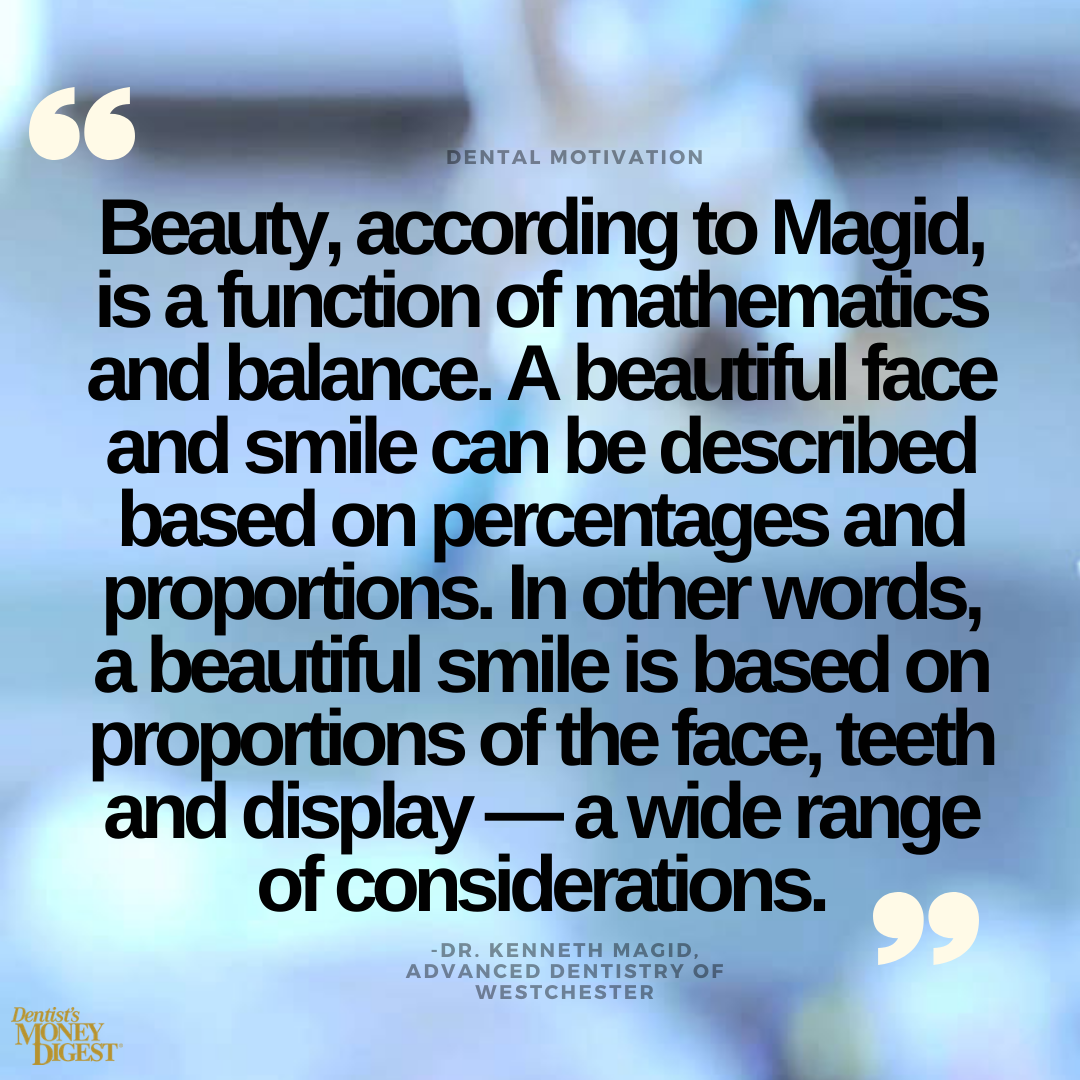
There is a mathematic formula for the width, length, shape and position of teeth based upon the patient’s face and dental arch. With this altered photo, the patient can see his, or her, new smile and make any changes he would like. Once they are happy with the new look, the ceramist artistically creates the final result in a wax model.
This “wax up” smile is used to guide the dentist in preparing the teeth if necessary and to create the basic shape of the temporary veneers or crowns. It is the artistic talent of the dentist that modifies these temporaries while the patient is wearing them for maximum esthetics.
The patient gets to leave with this “try in” smile and live with it for days to make sure he loves the new look so there are no unhappy surprises. All that is necessary is for the dental ceramist to copy the try-in smile using artistically added shades and stains for a beautiful but natural look that is ready for a Zoom close-up.
Is a Smile Makeover Right For Me?
Let’s face it: Nothing says more about our age and success than a beautiful, natural smile. Yet few of us are born with a smile that makes us happy.
If you’re thinking about cosmetic dentistry, the first step is to know what you want to change about your smile.
The changes can be subtle or dramatic but all can contribute to a new you.
According to a survey conducted by Harris Interactive, 84 percent of adults perceive having an attractive smile important.
This poll of 1,000 American adults between the ages of 18 and 50 years found that more than one-third would not be likely to set up their best friend on a blind date with someone with bad teeth.
An overwhelming majority (85 percent), consider a person’s smile to be very or somewhat important when meeting someone for the first time.
Almost 9 out 10 Americans polled said they thought people with good teeth are more attractive.
Among many factors, this poll explored the importance of smiles in the social arena, as well as dating and marriage.
Cosmetic Dentistry | Advanced Dentistry of Westchester
Ready to put your best smile forward?
Improving your smile is now more accessible than ever with high tech dentistry and cosmetic dentistry in the heart of Westchester County.
Even the subtlest change in your smile can make a dramatic difference in the way you look and feel about yourself, and the way others perceive you.
Talk to one of our cosmetic dentists in Westchester County, New York ask about teeth whitening, dental bonding, dental crowns and dental veneers.
Get Started Today: A Beautiful Smile Can Be Yours
163 Halstead Avenue • Harrison, NY 914.835.0542
How to Protect Your Children’s Teeth while Playing Sports
When it comes to playing sports, safety is the number one priority. Unfortunately, dental injuries are not uncommon when it comes to sports-related incidents. Here are our top tips to protect your children’s teeth during the back to school sports season.
Wear a mouth guard
The best way to prevent a dental injury is to wear a mouth guard. You don’t want your child’s teeth to be knocked out, broken or chipped. Before purchasing a mouth guard, talk with your dentist. Your dentist knows your child’s mouth the best. They know the appropriate suggestions for which mouth guard should be purchased. It is extremely important the mouth guard fits your child’s mouth properly. You do not want it to fall out while your child is on the field playing sports.
Maintain a healthy diet to build strong teeth and gums
By staying away from sugary snacks, you are building strong roots in your gums. When it comes to your child’s diet, limit soft drinks and sugary foods that promote tooth decay. Replace the candies, soda, and potato chips with fruits and vegetables. If your child does consume a sugary snack, the best thing they could do is drink water and brush their teeth. The water helps rinse away bacteria and brushing your teeth gives your child a good cleaning. The stronger your child’s teeth, the better protected they will be when playing a sport.
Take your child to the dentist twice a year
Taking your child to the dentist more than once a year might seem like a lot, but it is the easiest way to prevent any dental problems from forming. The dentist wants to keep your child’s teeth in tip-top shape. If any problems do occur, your dentist can fix it before it gets worse.
Encourage good hygiene at home
From a young age, you want to encourage good dental hygiene in your children. Keeping good hygiene at home includes: brushing your teeth twice a day or after every meal, flossing at least once a day, and changing your toothbrush every three months. Good hygiene will help make your children’s teeth strong and prevent any injuries from occurring.
Healthy Halloween Treat Alternatives for Kids
What is the best Halloween candy for your teeth?
Every Halloween, kids take joy in trick-or-treating and revel in the many great treats they collected.
You’re not going to be able to stop them from getting the candy, but when trick-or-treaters come to your door this year, you can provide healthy alternatives that can also be a big hit.
Dr. Kenneth Magid of Advanced Dentistry of Westchester Offers Advice on Healthy Treat Alternatives to Give to Kids on Halloween
Worst Halloween Candy For Your Teeth
A New York Dentist’s Guide to Halloween Candy
Joy in Toys. Small toys available in online catalogues are great options and don’t have to break the bank. Kids love playing with toys as much as they love eating candy and they last longer too.
Healthy Snacks Also Taste Good. This year, we are giving out spry mints and gum which help to prevent tooth decay. This treat should not be given out in large quantities and should not be given to very young children. Other healthy alternatives include little packs of carrots and pretzels. Parents will appreciate that you went the extra step to provide a healthy treat.
Choose Candy Wisely. If you have to give out candy, dark chocolate is a much healthier option and is better for your teeth then other candies. Avoid sticky and sour candy, which helps to dissolve teeth. Avoid fruit by the foot, it’s like gluing sugar to your teeth!
Remember, let your kids eat as much candy as you want on Halloween night but the next day make sure it’s out of the house. Stay safe and never eat unwrapped or unsealed candy. Although horseplay is part of Halloween, a little common sense avoids traumatic injury.
Dental Treatment During Pregnancy Tips
Pregnancy is a wonderfully exciting time that necessitates a unique set of precautions and medical practices. Often, expectant mothers do not consider how their dental health can impact their overall well being during pregnancy.
Dental treatment during pregnancy is a function of evaluating the risk and reward in any given situation. With a few considerations, dental care during pregnancy can be easy and beneficial— for both mother and baby!
Keep Gums Healthy
Healthy gums are an important part of a healthy pregnancy. Periodontal or gum disease can be related to low birth weight and premature babies, as well as a serious pregnancy complication called preeclampsia. It is important to have your teeth cleaned during pregnancy, preferably during the second trimester, to help avoid these problems and combat the inflammation that typically occurs during pregnancy. Be sure to keep up with regular flossing and brushing at home, and remember to be thorough but gentle.
Get Your Teeth Checked Early
It is also important to have your teeth checked for major problems that could cause pain and infection. The best time to have this or any necessary treatment is the second trimester, so try to schedule your checkup and cleaning for the beginning of the second trimester to give you optimal time for any treatment that will be needed. Local dental anesthesia is generally safe, and worth using to prevent pain or infection.
Know the Technology
In our office, we have technology including lasers and air abrasion that are comfortable without anesthesia and are completely safe. As far as x-rays go, if there is an imminent concern, your dentist may decide an x-ray is necessary, and you will be covered with a protective shield. Keep in mind that digital x-rays have a particularly low level of radiation (far less than a cross-country flight). That said, if there are no particular concerns and you have a low rate of decay and dental problems, regular check-up x-rays may often be postponed. Communication is key, so speak to your dentist about any concerns you might have. Oral health is an important part of a healthy pregnancy!
Post-Baby Cavities: What You Need to Know
Some women unfortunately find that they have more cavities than they’re used to at their post-baby cleaning. Why? For starters, common pregnancy symptoms such as heartburn and vomiting. When people talk about cavities, they usually mention sweets and bacteria. But what actually happens is that the bacteria eat the sweets (or any carbohydrate) and produce acid. It’s the acid that actually rots teeth. All of that acid that comes with reflux and vomiting creates cavities. Another reason for the higher cavity rate is a change in habits during pregnancy. If you have morning sickness, you may only be able to eat high-carbohydrate foods. You will also likely be eating or snacking more frequently, especially as you get further along in pregnancy. Your mouth takes about twenty minutes to recover from the acid in your diet and being produced by the bacteria that are being fed. More frequent snacking means more time that your teeth are being bathed in acid. That goes for sipping on anything other than plain water, too.
Cavity Prevention Techniques
What can you do? Between meals opt for plain water or try adding cucumber or mint instead of lemon (sour and citric drinks and foods are acidic). Try to limit time for snacking or sipping on anything else. Additional small meals if necessary are better than having a nibble every few minutes. Avoid dried fruit, it’s like gluing sugar to your teeth for the bacteria to feed on for longer periods of time. If you have something acidic or acid coming up from your stomach, rinse with water or rub on some toothpaste with your finger or q-tip. Vigorous brushing right after may remove some of the tooth structure you’ve just softened with the acid. Lastly, be diligent about your hygiene regimen of brushing and flossing, especially before bed, and don’t forget your mid-pregnancy checkup!
What You Need to Know About Toothpaste
The toothpaste aisle of your local drug store can be very confusing. There are so many brands and variations to choose from! Dr. Magid breaks down what you need to know to choose the right type of toothpaste in our latest blog post.
Does it matter what kind of toothpaste I buy?
“Natural” brands are okay, but look for one with fluoride in it. Not using fluoride can have damaging, painful and costly consequences. Fluoride is completely safe when used topically, and in controlled concentrations when ingested such as tap water and supplements. What this means is that all adults and children who are old enough to reliably spit the excess toothpaste out, should be using fluoride toothpaste. For patients with a high cavity rate, we often recommend a prescription level fluoride toothpaste to help prevent further decay. Again, as long as you don’t eat the toothpaste for breakfast it only sits on your teeth, helping to make your teeth stronger and remineralize them safely.
What are the upsides and downsides of different types of toothpaste?
Most whitening toothpastes have abrasives that remove surface stains rather than actually bleach your teeth.
Sensitive toothpaste can be helpful for non-lingering cold and sweet sensitivity. It may take a few weeks of continual use for them to be effective. However, if the problem persists or there are other symptoms, it is important to see your dentist to rule out other sources of the discomfort.
The ADA seal on some toothpaste means that statements and claims made on that version of paste have been approved by the organization. Some people have a sensitivity to an ingredient which can be found in many toothpastes. The ingredient is called SLS, sodium lauryl sulfate, and can cause mouth sores in those who are allergic to this ingredient. Read the list of inactive ingredients to look for it, even in seemingly “natural” product lines. However, if a sore does not go away after two weeks or they keep recurring despite switching toothpaste, see your dentist for evaluation.
What is the primary ingredient that makes toothpaste effective?
Triclosan is an ingredient in some toothpaste, such as Colgate Total. It targets the bacteria that cause gum disease and can be effective in combatting gum disease. As in all adult toothpastes, excess should be spit out so that large amounts are not ingested.
Where does toothpaste choice rank in level of importance when brushing your teeth?
As long as the toothpaste meets your requirements for ingredients, the rest comes down to personal preference, feel and flavor, whatever will make you more likely to brush morning and night. No matter how good your toothpaste is, care should be taken to brush the debris from all surfaces of your teeth. Be sure to gently brush by the gum line, both tongue-side and cheek-side, and on the chewing surfaces. It should take about two minutes to thoroughly brush all surfaces of your teeth. Keep in mind that it is not necessary to brush hard, what matters is that you reach all areas. Floss daily to get the build-up between the teeth and stimulate the gums. And don’t forget to have your teeth checked (screened for cavities, infection, and oral cancer) and professionally cleaned (there are areas that you may not be able to reach and hard build-up that we can take care of for you) at least every six months!
How To Fight Bad Breath
 Bad breath can be very embarrassing, but it is more common then you may think! More then 80 million people suffer from chronic halitosis (bad breath). Here are a few tips that will help you fight it!
Bad breath can be very embarrassing, but it is more common then you may think! More then 80 million people suffer from chronic halitosis (bad breath). Here are a few tips that will help you fight it!
Brush your teeth twice a day and floss daily
Brush your teeth twice a day for two or three minutes. Brushing your teeth can help remove plaque and any food debris that were left behind. Many people do not think flossing is important, but what they do not realize is brushing your teeth does not remove all food debris. Flossing reaches the areas where your toothbrush cannot. Sometimes the remaining food debris is actually the cause of bad breath. Most over the counter mouthwash dries out the tissue and after a short time promotes bad breath. Use them sparingly and never use mouthwash containing alcohol on a regular basis it has been linked to oral cancer. We only recommend all natural mouthwash.
Brush your tongue
You want to make sure you brush your teeth really well. When people brush their teeth, they often forget about their tongue and the roof or their mouth. This is a prominent space for bacteria to form. To get rid of all of it, all you need is a good scrub with either your toothbrush or a tongue scraper.
Quit smoking
People who smoke tend to have bad breath. The tobacco dry’s out your mouth and leaves an unpleasant scent. The easiest solution to this problem is to quit smoking.
Visit your dentist
You should be visiting your dentist once or twice a year to make sure you have good dental health. If you are suffering from chronic bad breath, visit your dentist to find out if there is a larger health issue. Contact us today to schedule your next appointment.
Summer Cavity Culprits Revealed
Worst Summer Food for your Teeth
Westchester County dentist shares top tips for a healthy summer smile
Dr. Sabrina Magid-Katz shares oral health tips
What is better than laying out on a hot summer day with a glass of sparkling water in hand? Unfortunately, the same cannot be said for the effect those delicious summer cocktails have on your teeth. Summer is a time for pool parties and BBQ’s, but it is important to keep those pearly whites healthy too!
Chips, sodas and sugary drinks are summer favorites, but unfortunately, they are also dental health dangers.
Westchester Dentist Dr. Sabrina Magid-Katz of Advanced Dentistry of Westchester shares the top cavity culprits to look out for this summer as well as her favorite healthy substitutes.
Lemonade
When people think of summer, they often think of lemonade. What they may not think about is how sipping on this refreshing drink is affecting their teeth. Not only does the sugar in lemonade feed the bacteria in your mouth, but even the sugar-free lemonades have acid. It’s the acid that actually causes tooth wear and decay. “When people talk about sugar causing cavities, what really happens is that the bacteria eat the sugar and produce acid which erodes the teeth.
It takes approximately 20 minutes for your mouth to recover from the acid, so how often you sip or snack is actually more important to your teeth than how much,” says Dr. Magid-Katz. For a healthy substitute, try cucumber-infused water instead. It’s just as refreshing on a hot summer day and good for you too!
Dried Fruit
Summer is a great time for fruit. Make sure to opt for fresh fruit instead of dried. Not only are many types of fruit in season now, but eating them fresh is a much healthier alternative. The dried fruit is sticky and holds on to your teeth for extended periods of time, constantly feeding the bacteria in your mouth and causing cavities. When eating any kind of fruit (or any food at all for that matter) beware of hidden pits that can break teeth and seeds that can hide under your gums and in the grooves of your teeth. Be sure to brush and floss thoroughly to keep the seeds out.
Gummy Candy
While gummy candy can be tempting this summer, it is one of the top cavity culprits! Be sure to avoid sticky candies and sour candies. “Sour candies get their sour taste from acid, which dissolves teeth,” says Dr. Magid-Katz. The sticky part of the candy sits on teeth and feeds bacteria. Go for the dark chocolate instead of the sour patch kids. Also avoid fruit by the foot. Fruit by the foot is many things, but fruit isn’t one of them. It is like gluing sugar to your teeth.
“Healthy” sticky snacks
Granola and raisins are considered “healthy” snacks that are actually dental dangers. These snacks are prone to sticking to teeth and contain substances that help keep bacteria in the mouth. As a healthy alternative this summer, opt for a less sticky “healthy” snack such as celery. Celery has lots of fiber and water, which is good for your whole body. Try some nut butter on it for an extra boost.
Maintain a healthy and beautiful smile all summer long.
Here are out top tips to ensure a healthy smile, while still being able to make the most of your summer.
DENTIST SHARES ORAL HEALTH TIPS FOR SUMMER
Limit sugar intake: Summertime often means more sugary and acidic drinks, such as soda, sports drinks, and lemonade. Try to limit your intake of these beverages and opt for water instead of sparkling water.
Gulping is more beneficial to your teeth than sipping.
Any drink that is acidic can remove enamel; so, try to stay away from lemon or lime-based cocktails.
Wine is acidic and removes layers of enamel, but if you are a wine enthusiast, white wine is actually more acidic than red.
Adding a lot of sugar to any drink makes the drink more of a dental problem, so instead use whole fruit as an added sweetener.
What are some common dental problems that can arise during summer?
There are several common dental problems that can arise during the summer:
Dental emergencies: Summer activities such as swimming, amusement parks, sports, and other outdoor activities can increase the risk of dental emergencies such as chipped or knocked-out teeth.
Tooth sensitivity: Many people experience increased sensitivity to hot and cold foods and drinks during the summer which can be caused by consuming excessive amounts of acidic or sugary beverages, or dehydration.
Dry mouth: Hot weather, outdoor activities, and certain medications can cause dry mouth, which can increase the risk of tooth decay and gum disease.
Tooth decay: Increased consumption of sugary drinks and snacks, along with poor oral hygiene can increase the risk of tooth decay.
Oral health tips for summer vacation:
Pack a travel dental kit: Make sure to pack a toothbrush, toothpaste, floss, and mouthwash to maintain good oral hygiene while on vacation.
Keep up with oral hygiene: Even if you’re on vacation, it’s important to maintain good oral hygiene habits. Brush your teeth twice a day and floss at least once a day to remove plaque and food particles from between your teeth.
Drink water: Instead of sugary or acidic drinks, choose water to stay hydrated and keep your mouth moist.
Protect your teeth: If you are participating in outdoor activities, wear a mouthguard to protect your teeth from injury.
Don’t chew on ice cubes: Ice cubes are tempting to chew on to cool down, but they can also wreak havoc on your teeth.
Protect your gums from the sun: If you want to avoid gum sensitivity, be sure to use SPF to protect your gums.
Whiten your teeth: You may want to consider professional teeth whitening before a summer vacation to whiten your smile for vacation photos.
By following these simple tips, you can maintain your oral health routine while enjoying your summer vacation.
What should I do if I experience a dental emergency during summer?
Be sure to act quickly in the event of a dental emergency.
Contact your dentist: Call your dentist’s office as soon as possible to let them know about the emergency. They can advise you on the next steps to take and may be able to schedule an emergency appointment. If you experience a dental emergency during the summer, it’s important to act immediately.
WESTCHESTER COUNTY EMERGENCY DENTIST | HARRISON, NEW YORK
If you are planning on traveling this summer, schedule a checkup before you go away. Call the office to book an appointment so your teeth are sparkling and vacation photos ready for all of your selfies. Are you due for a checkup? Call today to schedule your next appointment! (914) 835-0542.
How to Get a Sparkling Smile in Wedding Photos
From dress, to venue, to menu— There is a lot to consider when planning a wedding. But what is most often overlooked and forgotten about- is achieving a sparkling smile! We offer many dental and cosmetic treatments that can get your smile in sparkling condition, just in time for wedding season!
What is the value of a smile?
Whether it’s in a business meeting, on a date, in a casual conversation, a wedding, a job interview, at a family reunion or just the first hello in the morning, your smile radiates confidence. That kind of confidence reaps rewards every day of your life.
WEDDING DENTAL TREATMENTS
Dental treatments to get before your Wedding Day
Here are the top treatments we recommend getting before your wedding to achieve a sparkling smile:
Pre-wedding Cleaning
Whether it’s your big day or you’re a guest, a pre-wedding cleaning is recommended for anyone who wants to look their best in wedding pictures. Be sure to book your cleaning sometime within the month leading up to the wedding, so your teeth will still be sparkling and fresh!
Whitening
If you’re a bride, a white smile is necessary to match your pristine white dress! Whitening treatments take as little as two hours and will make a huge difference in your smile and overall appearance.
Veneers
If you’re looking to really “wow” the wedding crowd, consider veneers. Veneers would be ideal for wedding guests who want to look their best and make an entrance! Veneers are carefully applied in translucent thin layers so that each tooth can be shaped exactly as you’d like. It can be matched in color with your other teeth, or used to restore your smile to the whiter color of your youth. Think of veneers as whitening and reshaping all-in-one!
Invisalign
Invisalign is the perfect alternative to braces for any bridal party member. Invisalign is a series of virtually invisible plastic aligners that will straighten your teeth and perfect your smile. For adults, a treatment will usually take about one year, so be sure to book a consultation early in your wedding planning!
Fillers
A great smile isn’t all about your teeth— for those who want to appear youthful and radiant, fillers are a great option. Fillers will diminish fine lines and wrinkles, making your face appear more voluminous and full. Another bonus, since there is little downtime for filler recovery, you can squeeze an appointment in as a last minute boost before the big day!
If you’re interested in any pre-wedding treatments, make an appointment with us today and we’ll work together to make a pre-wedding sparkling smile game plan!
Gum Sensitivity and How to Treat it
RECEDING GUMS:
What causes gums to recede?
Gum sensitivity is a problem many Westchester County dental patients face. There can be a variety of causes for gum sensitivity and treatment options vary just as much. In this post, we will shed some light on the common gum sensitivity questions and concerns we get here at Advanced Dentistry of Westchester.
In this article, we will cover:
- What can a dentist do for sensitive gums?
- Can you reverse gum sensitivity?
What are the typical causes of gum sensitivity?
When people talk about sensitive gums, they are typically talking about the cold or sweet sensitivity their teeth are feeling near the gums. This is often caused by a lack of gum coverage on the tooth called recession.
Recession itself can be caused by multiple factors including inflammation of the gums (gingivitis or periodontitis), forces on the tooth, or hard tooth brushing. Some people do experience temporary sensitivity from teeth whitening as well.
Another common cause of sensitivity is clenching or grinding.
However, if the gum sensitivity persists it is best to have it evaluated by a Westchester County dentist.
What should I look for in gum sensitivity products?
Many products, such as Sensodyne, advertise that they will help with sensitivity. Keep in mind, they may take a few uses to build up efficacy.
Potassium Nitrate is the key ingredient to look for.
Treating Gum Recession
Dental Sensitivity Treatment for swollen and enflamed gums
Procedures done to help gum recession?
In addition to over the counter sensitivity products and toothpastes, more powerful types of paste may be prescribed by the dentist.
Special prescription level fluoride can be applied in the office or at home.
Can receding gums be treated?
If there is gum loss and tooth structure loss, bonding can be placed over the area to block the “pores” of the tooth from sensitivity.
If clenching, grinding, or forces on a particular tooth are the culprits, an appliance or bite adjustment may help.
ORAL HEALTH TIPS
People with periodontal disease and infected gums must improve their oral care and maintain a routine standard of professional dental treatment to get the problem under control.
Certain things can dry the oral environment in your mouth, leading to plaque accumulation, proliferation of odor causing bacteria, gum inflammation, and potentially cavities if prolonged?
SOLUTION:
- Remove as much plaque and bacteria as possible by brushing, flossing, and tongue scraping/brushing.
- Keep the mouth as moist as possible. OTC products used for dry mouth syndrome common with many medications can be used to keep the mouth moist.
- Typical mouthwashes can exacerbate the problem by drying the mouth further. Either use an all-natural mouthwash (Tooth and Gum Tonic) or mouthwash containing chlorine dioxide will help.
The pandemic impacted the oral hygiene routines of many people, resulting in missed hygiene for routine dental appointments. Preventative dental care is critical when treating inflammation of gums. Poor dental hygiene can worsen the outcome of swollen gums if the problem persists untreated.
READ: Dr. Kenneth Magid, Dentistry in the age of Covid
Healthy gums, healthy smile
If you are not happy with your gums, we can assist with gum reconfiguring to help you get rid of a gummy smile with advanced laser technology.
During your dental appointment, we look for:
- Changes in medical history
- Soft tissue and excessive bleeding of the gums
- Dry mouth
We also check blood pressure when we notice excessive gum bleeding during a routine oral cleaning.
The way someone’s gums bleed can reveal a lot about their overall health in addition to their oral health. Your oral health is connected to your entire body.
TIPS
Keep Gums Healthy
Floss daily to get the build-up between the teeth and stimulate the gums.
Did you enjoy this article?
Keep Reading:
Healthy gums are an important part of a healthy pregnancy
Periodontal Disease & Gum Disease Treatment in Westchester County, NY
Check-in with your dentist in Harrison, NY and alert them if you’re experiencing any gum troubles. We can help direct you to the correct treatment and regain a comfortable and beautiful smile.
ABOUT THE AUTHOR
Dr. Kenneth Magid is currently the Director of Pre-Doctoral Laser Dentistry and Associate Clinical Professor at NYU College of Dentistry and is the Assistant Director of Honors Esthetics. He has appeared on national television and radio shows to discuss high tech and cosmetic dentistry including ABC and The New York Times. Dr. Magid lectures throughout the U.S. and Canada and is a contributor to many journals on topics including “Minimally Invasive” Dentistry, Laser Dentistry, Digital Radiography, Air-Abrasion dentistry, “21st Century Dentistry” and Cosmetic Dentistry. Dr. Magid received his dental degree from New York University College of Dentistry. Dr. Magid had practiced dentistry for over 40 years and practices at Advanced Dentistry of Westchester in Harrison, NY. Dr. Magid was inducted into The International College of Dentists (ICD) in recognition of his services to the field of dentistry. The top 4% of dentists worldwide are offered fellowship to The ICD, the pre-eminent honorary organization of the world’s top dentists who have by their actions demonstrated an interest and concern for their communities and profession.
What do Bleeding Gums Mean?
What do Bleeding gums mean?
Is it normal for my gums to bleed at the dentist?
Bleeding gums are a common sign of inflammation. When many people see blood when they floss, they stop doing it. In fact, the blood usually means to floss more, not less. Within reason, of course. In this post, we’ll cover how to properly floss and explore why gums bleed in the first place.
Why do gums bleed?
One of the most common causes of inflammation is buildup – of food, plaque (the soft debris that sticks to your teeth), and/or calculus (the debris that’s hardened onto your teeth). There are areas, especially under the gums, that may be difficult if not impossible to reach and clean on your own. Over time this stuff hardens and creates a pebble-in-shoe effect.
Every time you chew, the hard points poke your gums much the way a pebble stuck in your shoe would poke your foot. After a while, this repeated trauma causes inflammation and bleeding and soreness.
Good dental care at home helps to prevent this process, but routine cleanings at your dental office are necessary to reach the areas you can’t reach and to take off the hard buildup, which you won’t be able to remove on your own.
Are bleeding gums normal?
A little “pink in the sink” from bleeding gums is never normal, and it is important to have a professional evaluation to determine the potential causes and plan of treatment and prevention. While bleeding should not be considered normal and is not sign of good oral health, it is even more important to tell your doctor if you find your gums bleed even when you’re not brushing or flossing, as certain systemic conditions may contribute to this spontaneous bleeding.
What’s the correct way to floss?
Gently! Flossing should be done up and down hugging each tooth like a “C”, once a day and when food is caught. It is also important to have regular professional cleanings, at least every six months, since there are likely areas that you can’t reach at home.
There may also be other underlying causes of the bleeding, so it is important to discuss with your dentist.
What do dentists do to stop gums from bleeding?
New article states that patients who receive regular cleanings may have better overall health.
In “Health Plans Expand Dental Benefits,” McQueen writes in The Wall Street Journal that one dental plan recently began offering coverage of antimicrobial mouthwashes for pregnant women. The same plan conducted pilot programs designed to urge pregnant women and people with chronic disease to visit a dentist.
According to The Wall Street Journal, several health plans have taken notice and decided to cover teeth cleanings as part of their overall medical package in the hopes that there will be a decrease in the incidence of premature deliveries, diabetes, and heart disease.
Patients who are at-risk, such as pregnant women, people with heart disease or diabetes, will be expected to have a third regular tooth cleaning each year (one every four months rather than the usual one every six months), or additional deep cleanings as needed.
PERIODONTAL DISEASE
What disease causes my gums to bleed?
Periodontal Disease can lead to swollen and bleeding gums when left untreated.
The word periodontal means “around the tooth.”
What is periodontal disease?
Periodontal disease is a chronic bacterial infection that affects the gums and bone supporting the teeth.
Periodontal disease can affect one tooth or many teeth.
Periodontal disease begins when the bacteria in plaque (the sticky, colorless film that constantly forms on your teeth) causes the gums to become inflamed.
Dental expert reveals important news about periodontal disease and its effect on longevity.
Regular periodontal tooth cleanings are critical for overall health.
Young men who had a maximum oral hygiene index of 6 (0 indicating ideal oral hygiene and 6 poor oral hygiene) had a three to four times higher risk of dying sooner than those who had a hygiene index of 0. In addition, young men with periodontitis had a nearly threefold increased risk of dying from coronary heart disease.
An infection in your gums can travel through your body to other organs, such as your heart, digestive system, and lungs.
In the book “Real Age: Are You as Young as You Can Be?” Dr. Michael F. Roizen states that periodontal disease and poor oral hygiene may be indicators of premature death.
Gum disease has been linked to heart disease, diabetes, respiratory disease, digestive problems, osteoporosis, and immune problems.
It’s more important than ever to go for regular dental check-ups with a dental hygienist to ensure that you are maintaining adequate periodontal health.
Gum Disease Increases Risk of Osteoporosis
The link between gum disease and overall health cannot be overemphasized.
Researchers at the University of Buffalo and the University of New York at Buffalo recently found that most people diagnosed with periodontal disease were at a higher risk of underlying osteoporosis. Published in the Journal of Periodontology, the study involved more than 2,500 postmenopausal women.
It also found that women with low bone density, or osteoporosis, were at an 86 percent risk of having gum disease, the major cause of tooth loss in those older than 35 years old.
Researchers also discovered a strong relationship between the advanced form of gum disease that causes bone loss, gum-attachment loss, tooth loss, and osteoporosis.
Eliminating gum disease may also help combat osteoporosis, which affects more than 20 million people in the United States, accounting for nearly 2 million fractures a year.
Maintain a regular schedule of dental cleanings with your Westchester County dentist to remain vigilant against gum disease. Book an appointment today.
Dentist Near Me in Westchester County, NY
Get a dental check-up: A dental check-up can help detect and address any potential dental problems before they become more serious.
Are you looking for a dentist in Harrison, NY to help you with bleeding gums? Bleeding gums may indicate a larger issue. Poor oral hygiene can contribute to the development of gum disease, which can cause inflammation, bleeding, and tooth loss if left untreated. It’s important to maintain good oral hygiene habits and visit your dentist regularly to prevent and address these dental problems.
Schedule an appointment today we one of our dental hygienists.
Dr. Kenneth Magid, DDS, FICD, Named Top Dentist by New York Top Dentists
Congratulations to Dr. Kenneth Magid, D.D.S., who has been named a Top Dentist by New York Top Dentists! Dr. Magid has recived this honor based on patient reviews and training in the field. New York Top Doctors is an exclusive healthcare resource available to the public in their search for top healthcare providers. NY Top Dentists features the most respected and highly qualified healthcare providers in New York.
Selection into NY Top Dentists is thoroughly reviewed by a group of doctors who have over 40 years working within the medical field.
Dr. Kenneth Magid of Advanced Dentistry of Westchester said, “I am honored to be recognized as a Top Dentist of 2015.“
Dr. Magid has practiced dentistry in Westchester County for over 40 years. He is currently the Director of Pre Doctoral Laser Dentistry and Associate Clinical Professor at NYU College of Dentistry and is the Assistant Director of Honors Esthetics. He has appeared on nationwide television and radio programs to discuss high tech and cosmetic dentistry including ABC and The New York Times. Dr. Magid lectures throughout the U.S. and Canada and is a contributor to many journals on topics including “Minimally Invasive” Dentistry, Laser Dentistry, Digital Radiography, Air-Abrasion dentistry, “21st Century Dentistry” and Cosmetic Dentistry. Dr. Magid received his dental degree from New York University College of Dentistry.
About NY Top Dentists
NY Top Docs is an exclusive healthcare resource that reviews and approves healthcare providers in New York and features them online. There are two main divisions, NY Top Docs and NY Top Dentists. NY Top Docs is a trusted resource allowing the public to find high quality healthcare providers in a targeted method through selecting a search radius and specialty. NY Top Docs uses a comprehensive qualification questionnaire, research & an in depth screening process in selecting their top healthcare professionals. Their goal is to provide New York residents with a complete informational resource to assist them when choosing a Healthcare Provider. Visit nytopdentists.com for more information.
About Advanced Dentistry Of Westchester
Advanced Dentistry of Westchester offers patients of all ages the latest in dental care with technology available in less than 1% of dental offices nationwide. Advanced Dentistry of Westchester is run by Dr. Kenneth Magid, D.D.S., FICD, and Dr. Sabrina Magid-Katz, D.M.D. The practice offers a variety of services including family dentistry, cosmetic dentistry, implants and works with patients who suffer from sleep apnea. Advanced Dentistry of Westchester also offers technology that enables them to care for deaf and hard-of-hearing patients. Advanced Dentistry of Westchester is located at 163 Halstead Avenue, Harrison, NY. For more information call (914) 835-0542 or visit www.adofw.com or Facebook at Advanced Dentistry of Westchester.
Dr. Magid on Westchester Now
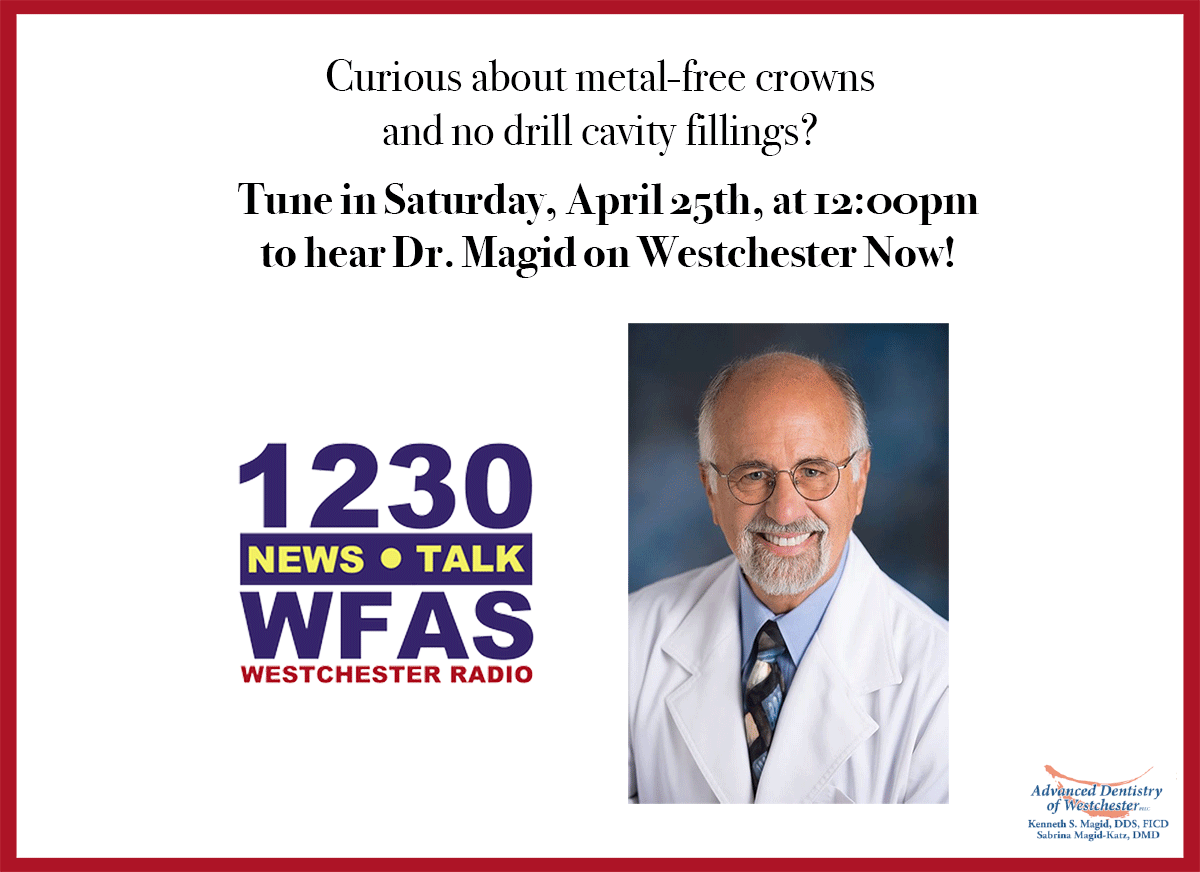
Tune in on Saturday, April 25th, to hear Dr. Magid speak about innovations in the dental field. He will be covering everything from “no shot/no drill” fillings to computer guided implants.
Listen to AM 1230 WFAS live here.
In case you miss it: The interview will also air on Sunday, April 26th at 5:30 am on 94.3 FM and on Wednesday, April 29th at Noon on 1230 AM.
Dr. Kenneth Magid Featured in April 2015 Dentistry Today
Dr. Kenneth Magid was recently featured in a full page article in the April 2015 issue of Dentistry Today. In the article, Dr. Magid discusses the benefits of adding the latest dental technologies into your dental practice today. Be sure to pick up a copy of the April issue or click here to read the full story.
How to Stop the Process of New Decay
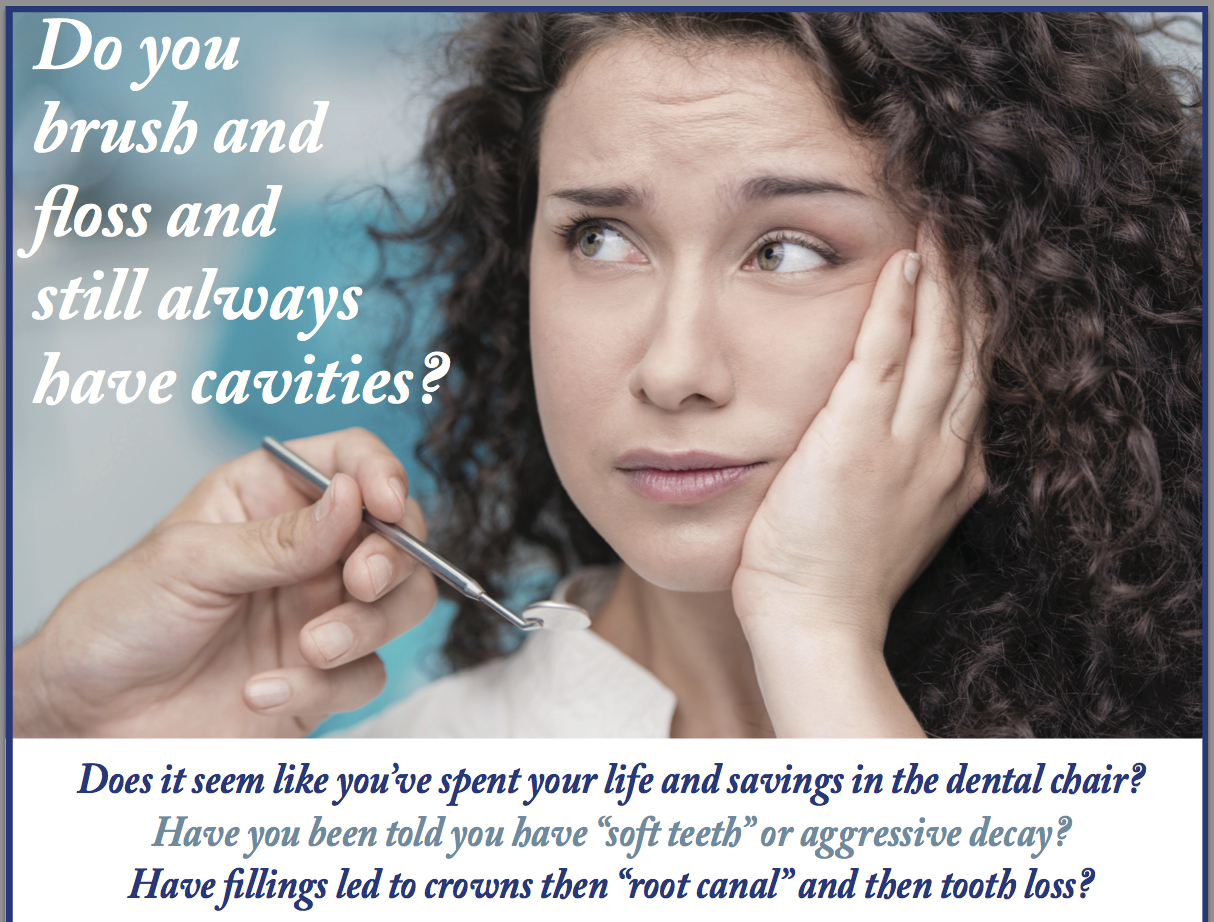
Looking to arrest cavities at an early stage and stop the process of new decay? Then our decay prevention program would be ideal. We have come up with the solution for patients suffering from tooth decay causing cavities. With over 100 patients already experiencing the success of this program removing over 90% of decay, we believe more Westchester residents can benefit from our decay prevention program.
Many people have spent their lives and fortunes in the dental office in a downward spiral of cavity restoration. But now, Advanced Dentistry of Westchester can stop this spiral through our new revolutionary, preventive dental program. There is proven science behind what we’re doing and it is especially beneficial for those who have truly damaging tooth decomposition. Of primary importance is the program’s efficacy with little cost and minimal disruption to patients’ lives.
The program helps patients prevent new cavities and arrest early decay, especially in people with aggressive decay. The program has been expanded to use the protein-building amino acid L-Arginine in topical form to help preclude new and further deterioration of teeth.
We have had a successful program for preventing decay for over 10 years and many proven cases. Now, we have added one more component that assures us we can be successful against even the most aggressive decay. This is very important for anyone that has been prone to cavities.
ABOUT THE PROGRAM
The program was developed at NYU’s College of Dentistry where Dr. Kenneth Magid, DDS, FICD and Dr. Sabrina Magid-Katz, DMD, are both faculty. As a result of their efforts, both have had anecdotal results of more than 90% reduction in decay of people who have used the program. Advanced Dentistry of Westchester currently has more than 100 patients using this program in various, customized stages of the program, depending on the aggressiveness of decay.
More Info
Contact Us
- Advanced Dentistry of Westchester
- Kenneth S. Magid, DDS, FICD
- Sabrina Magid-Katz, DMD
- 163 Halstead Ave. • Harrison, NY 10528
- (914) 835-0542

